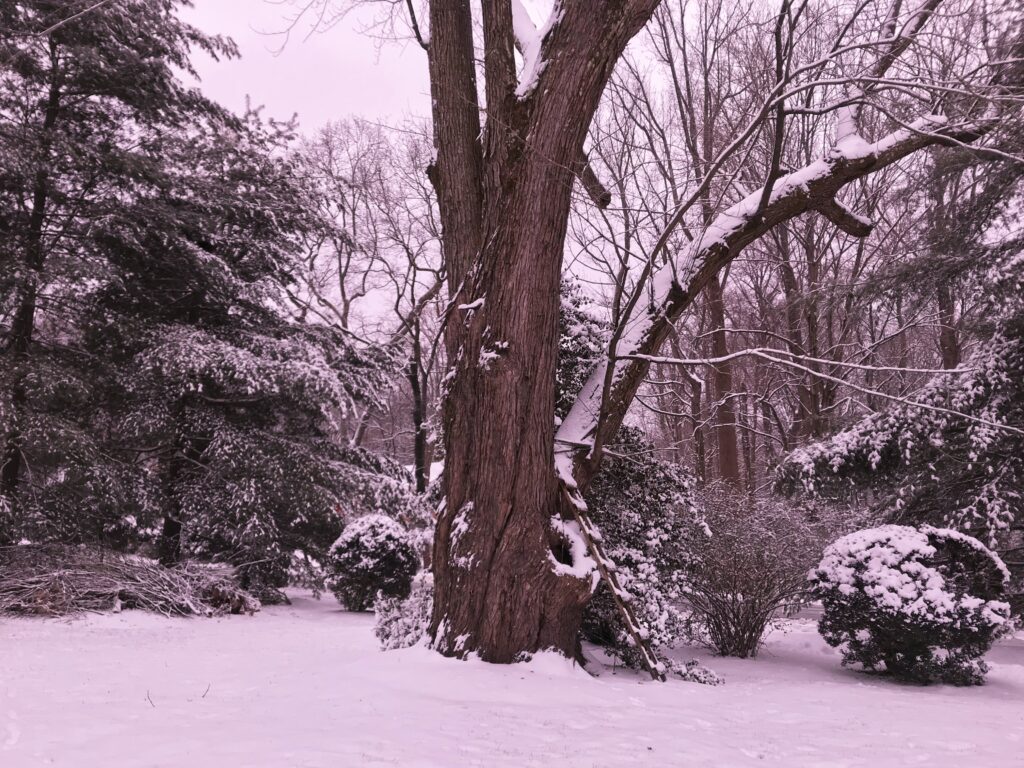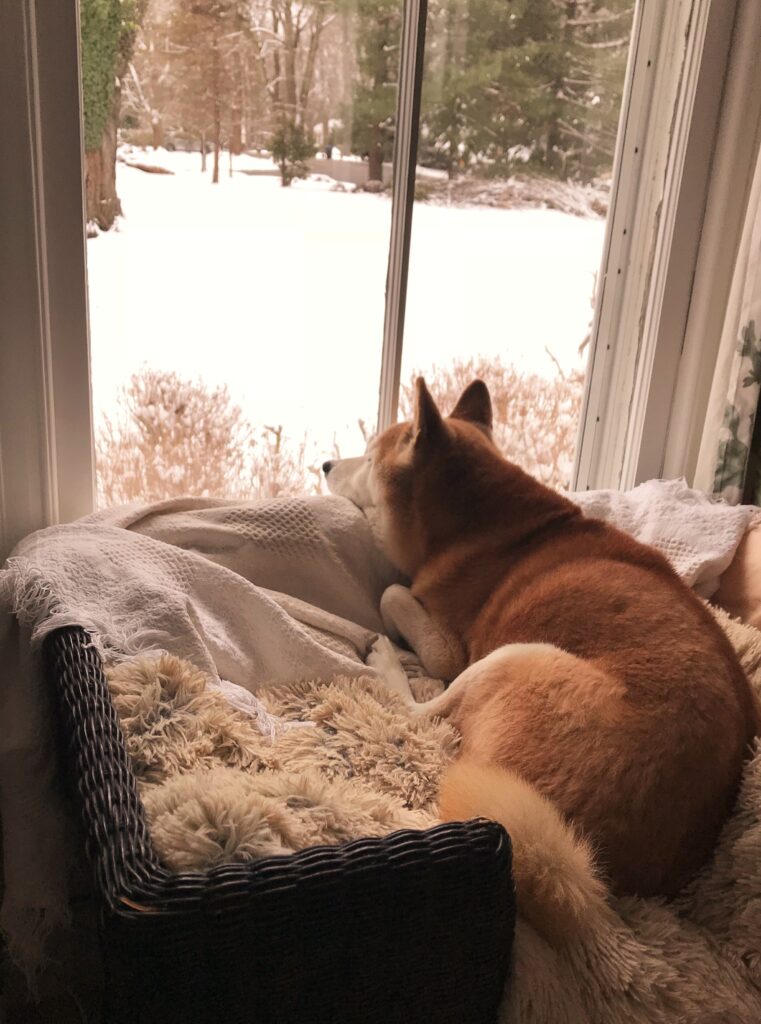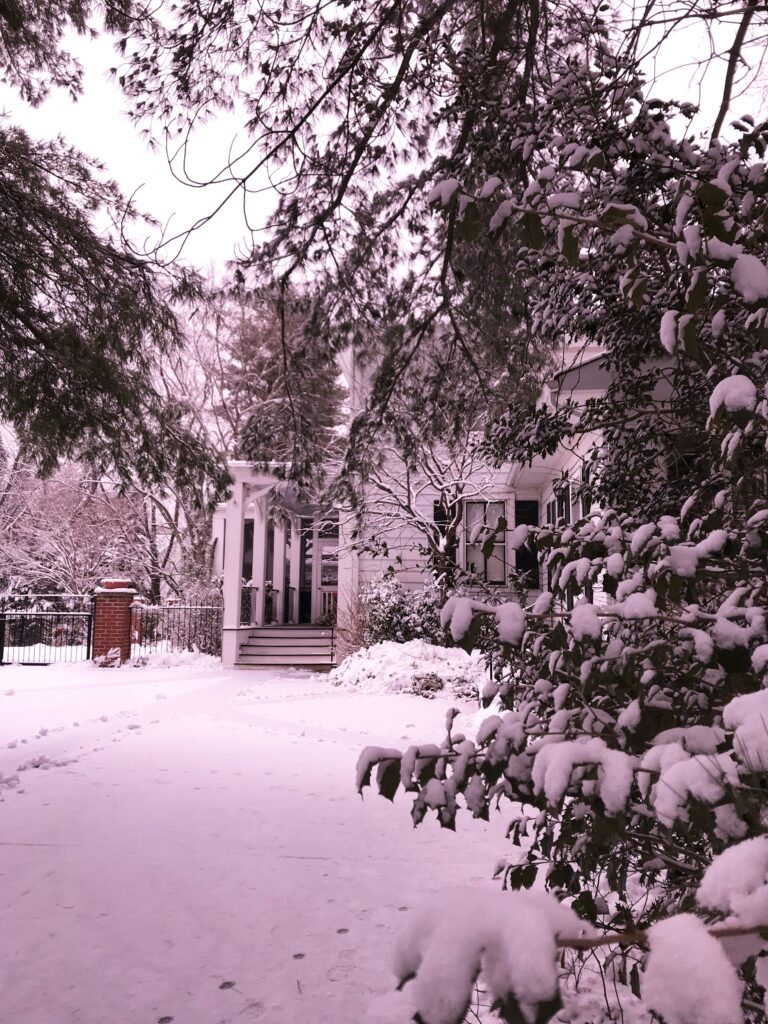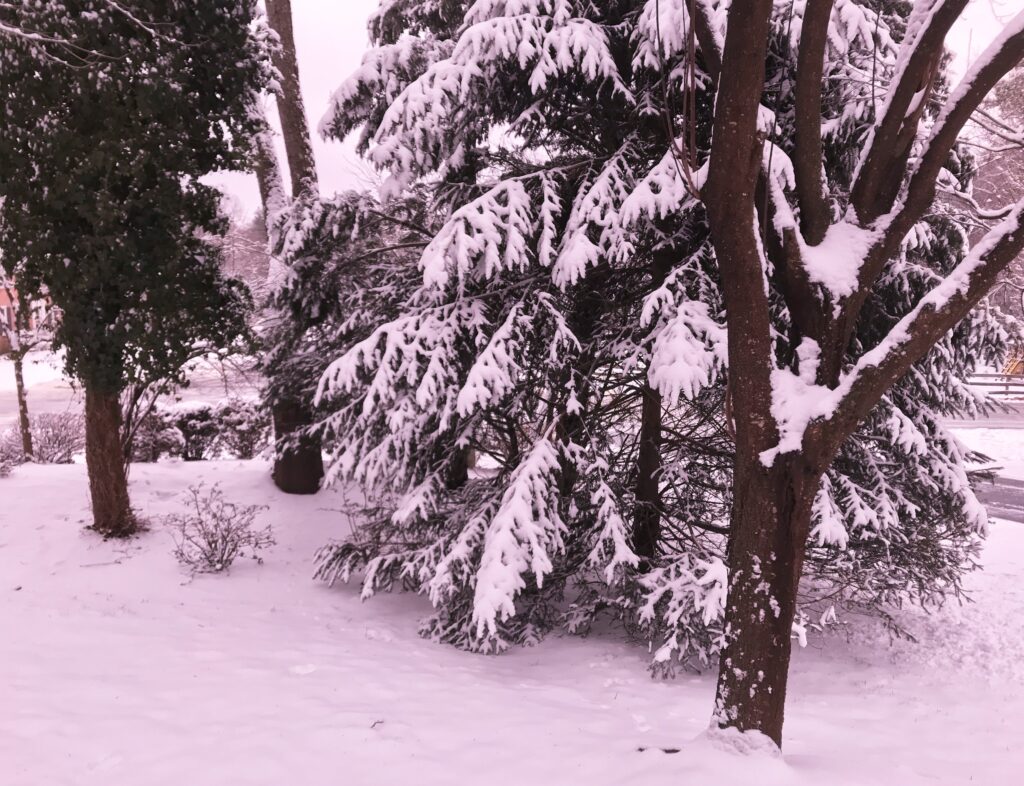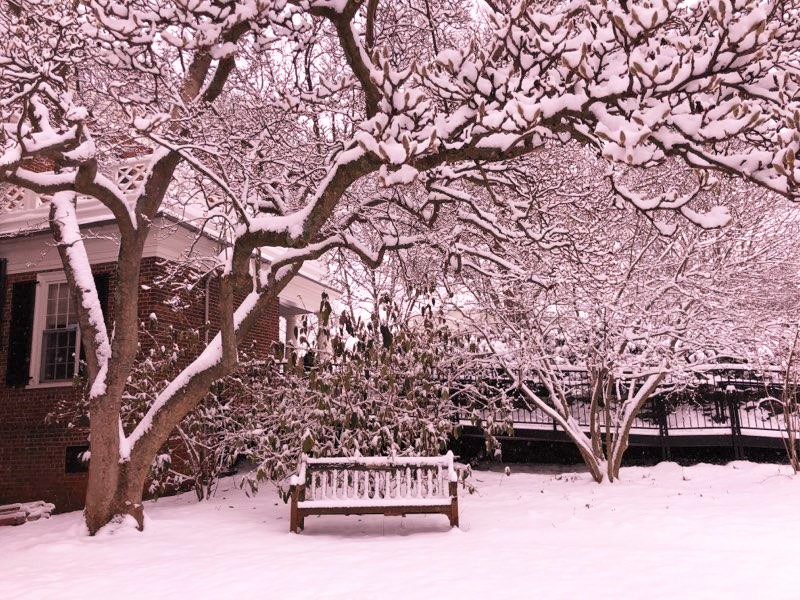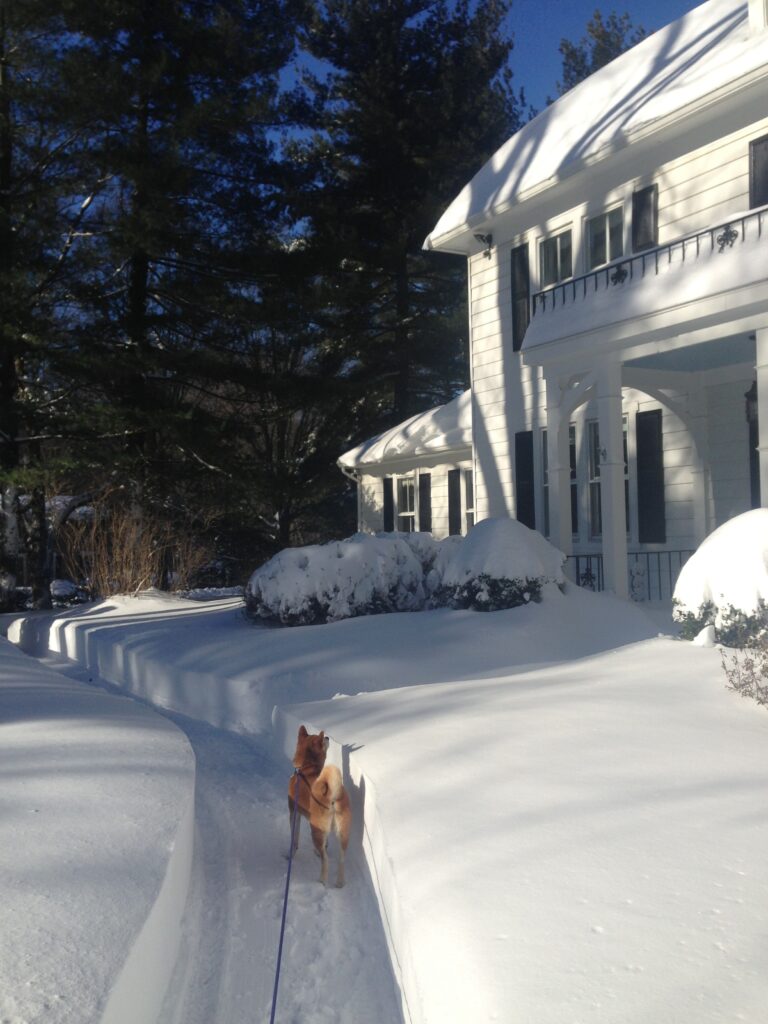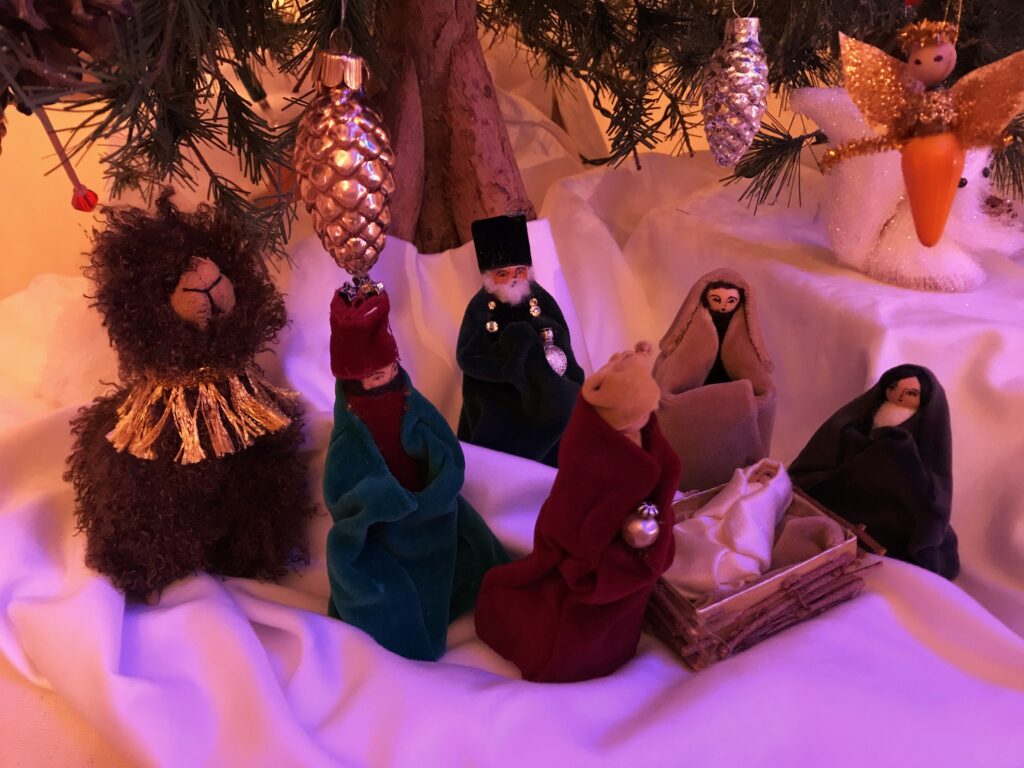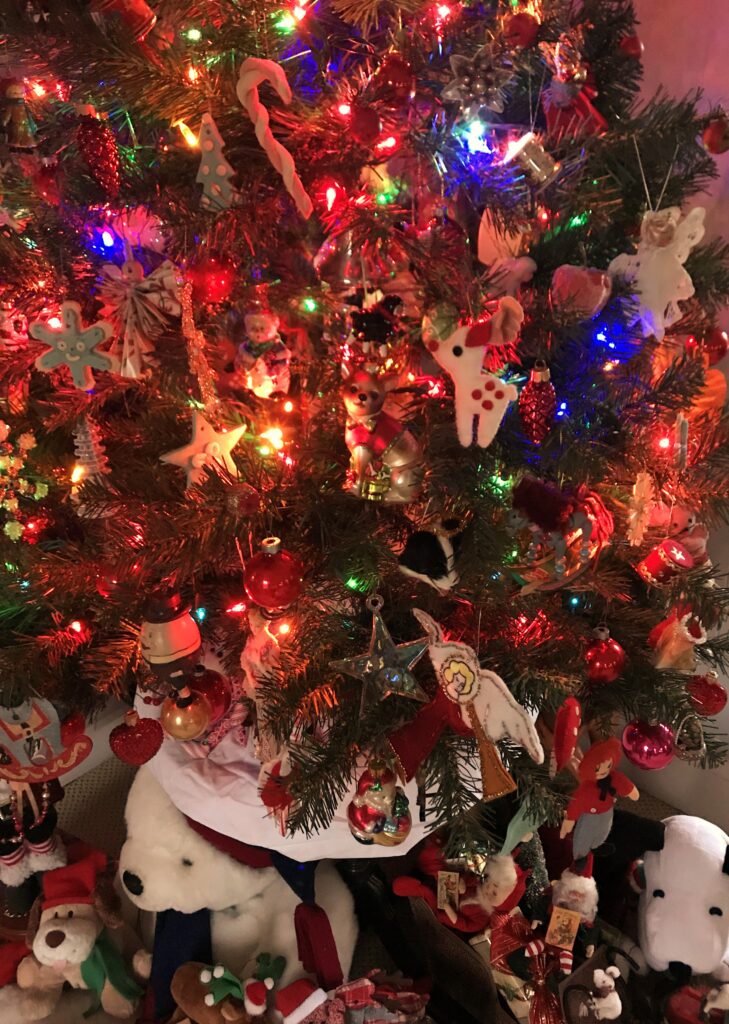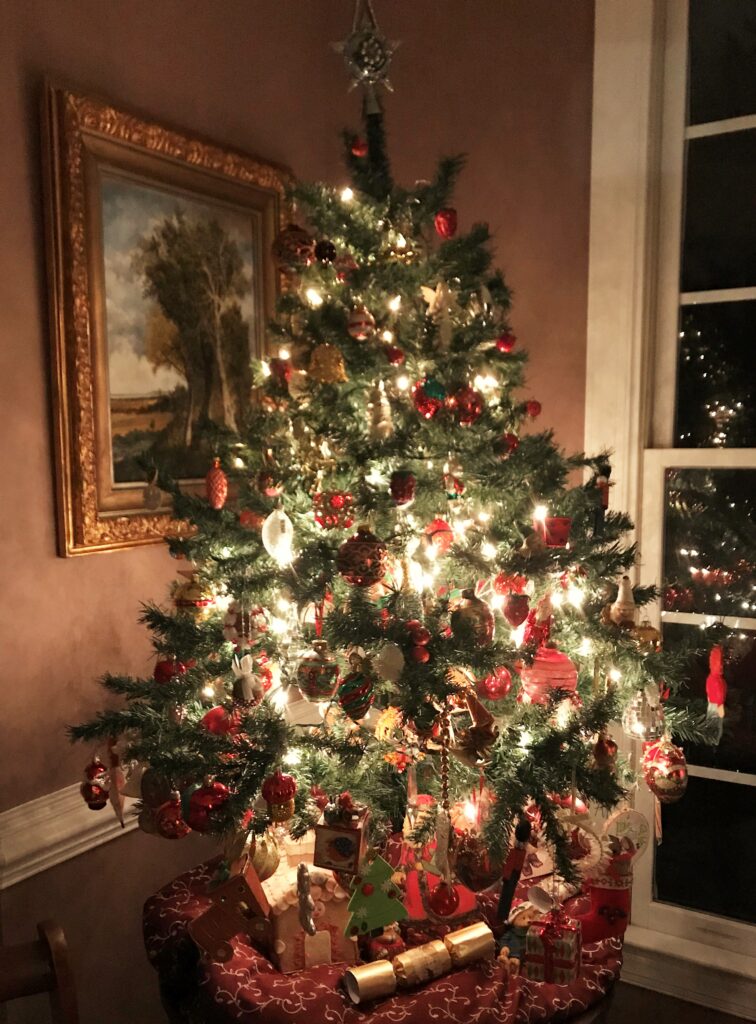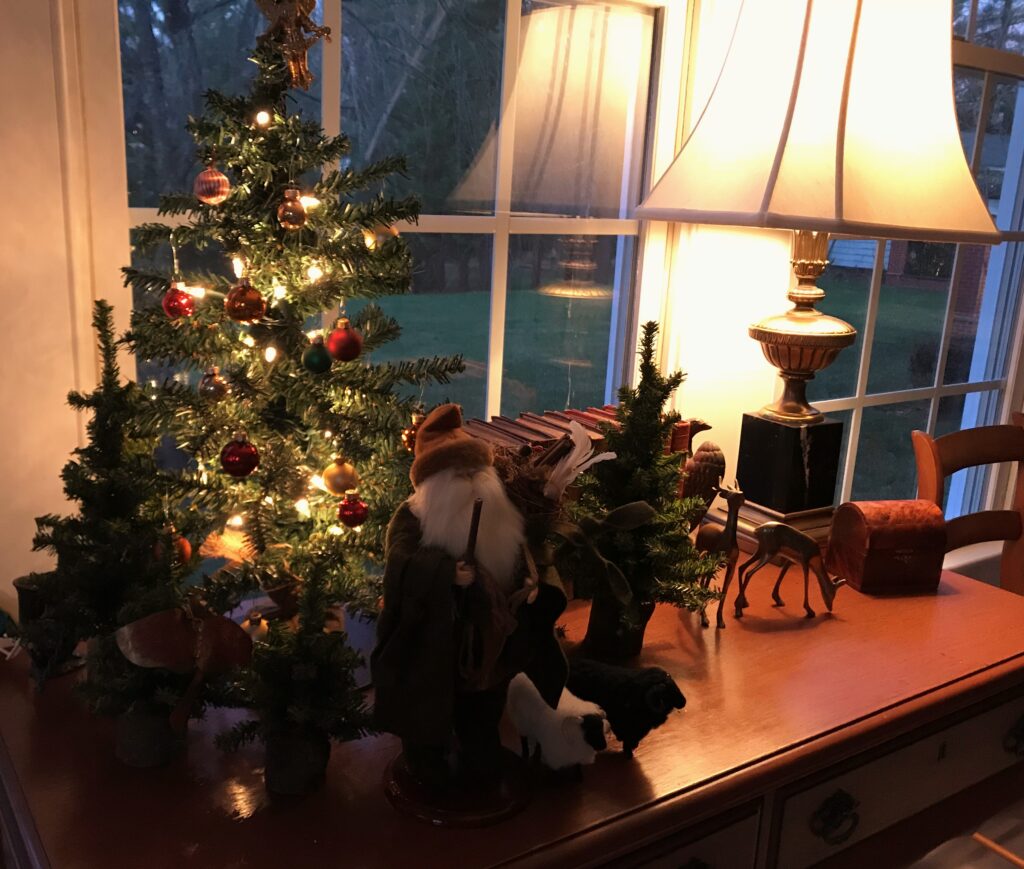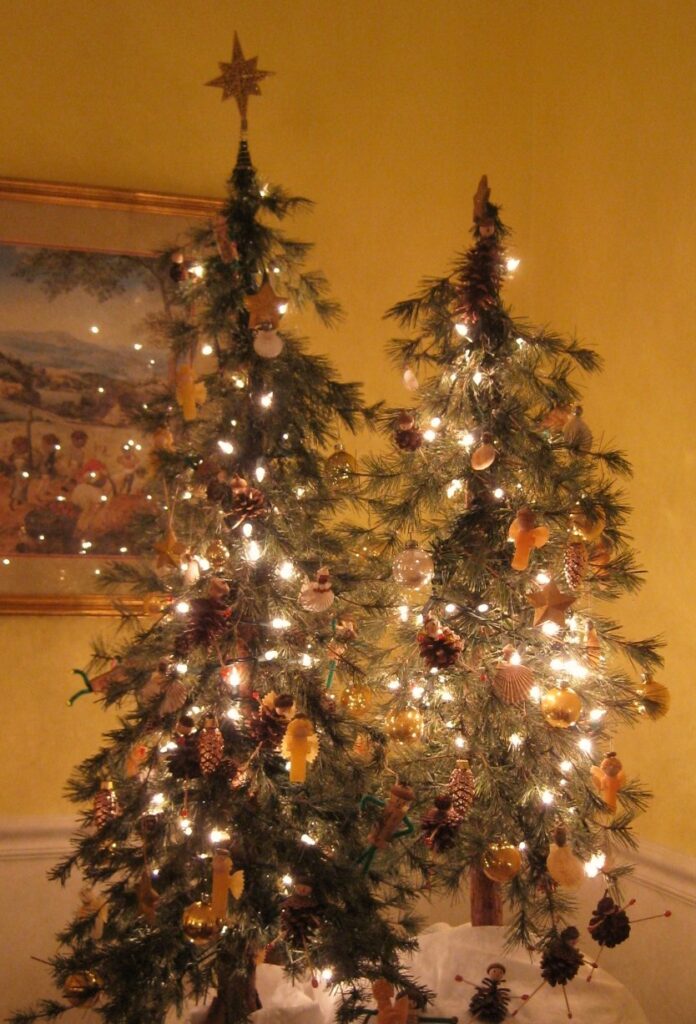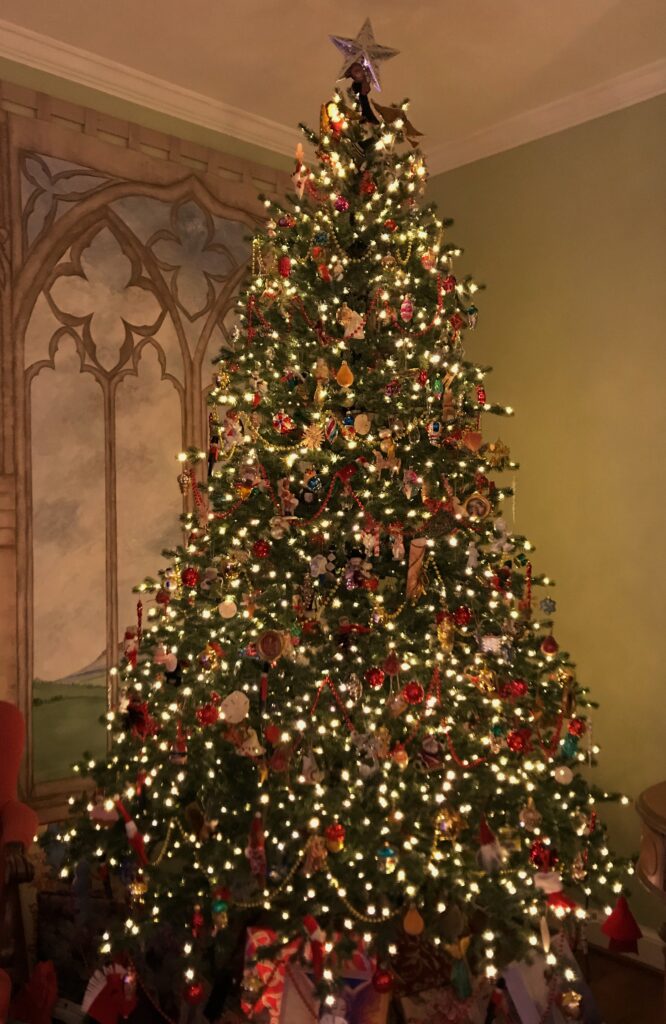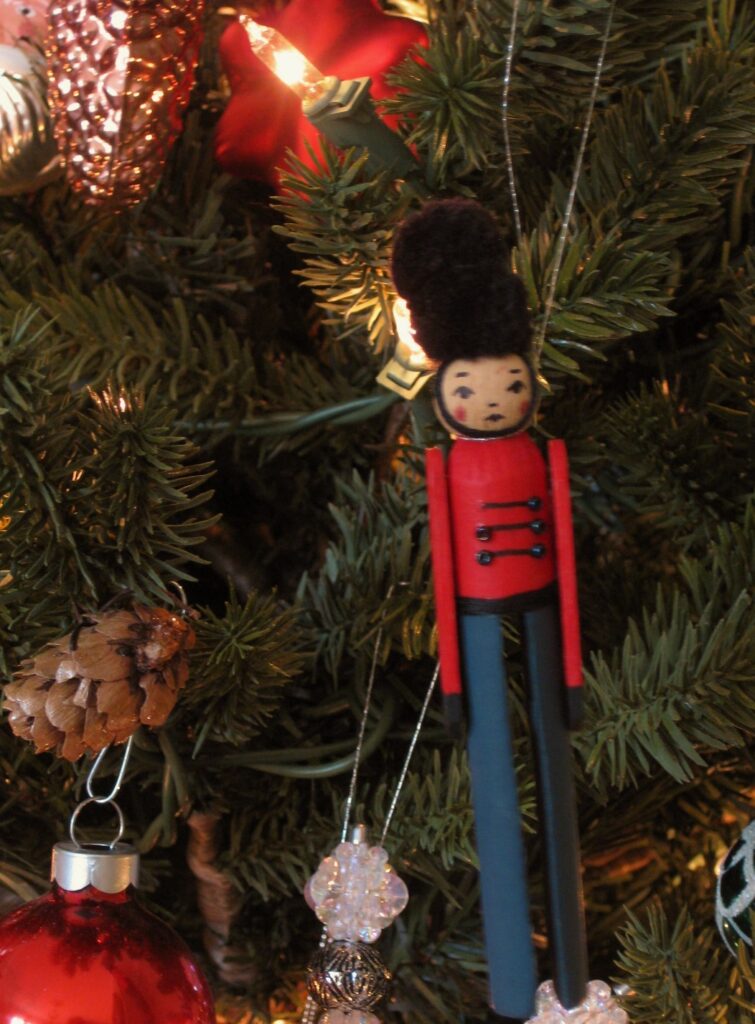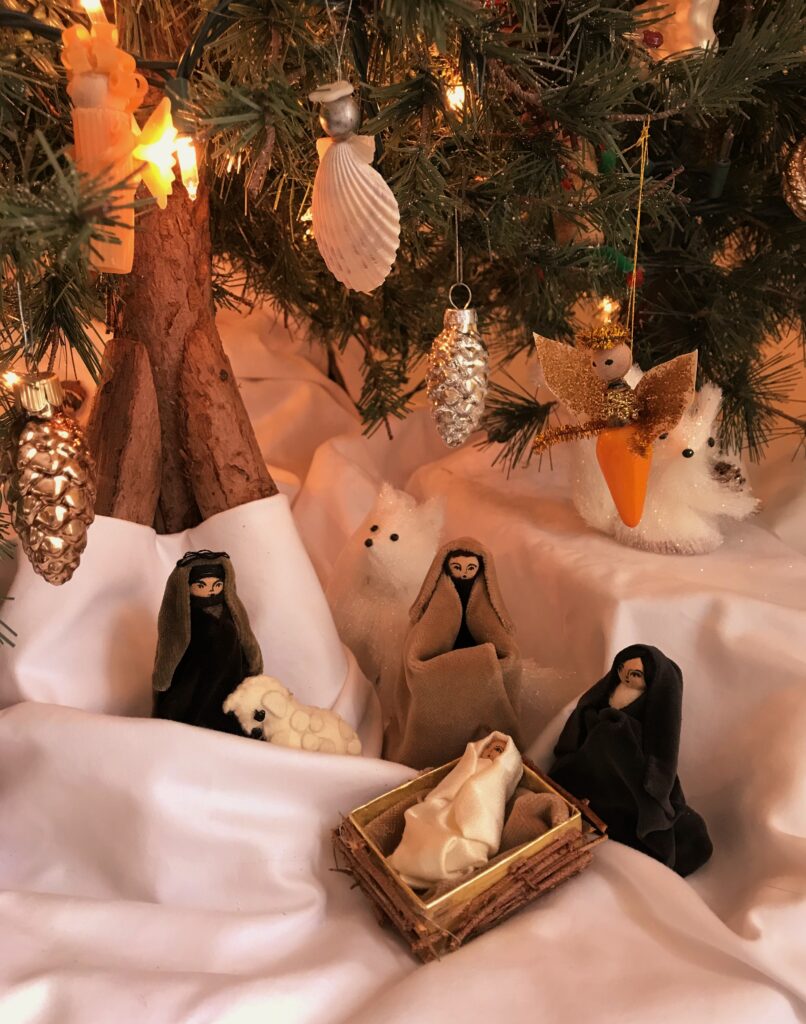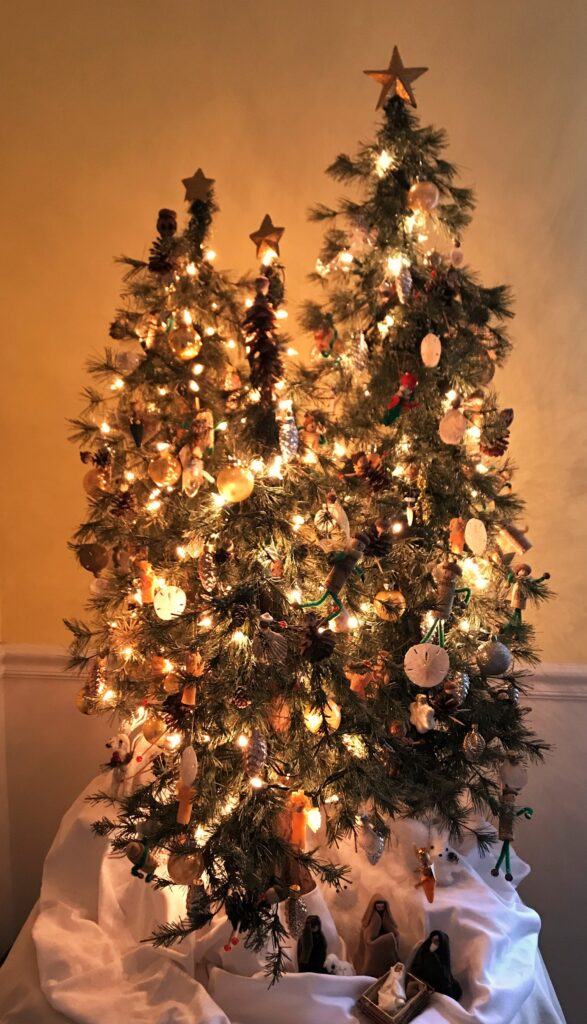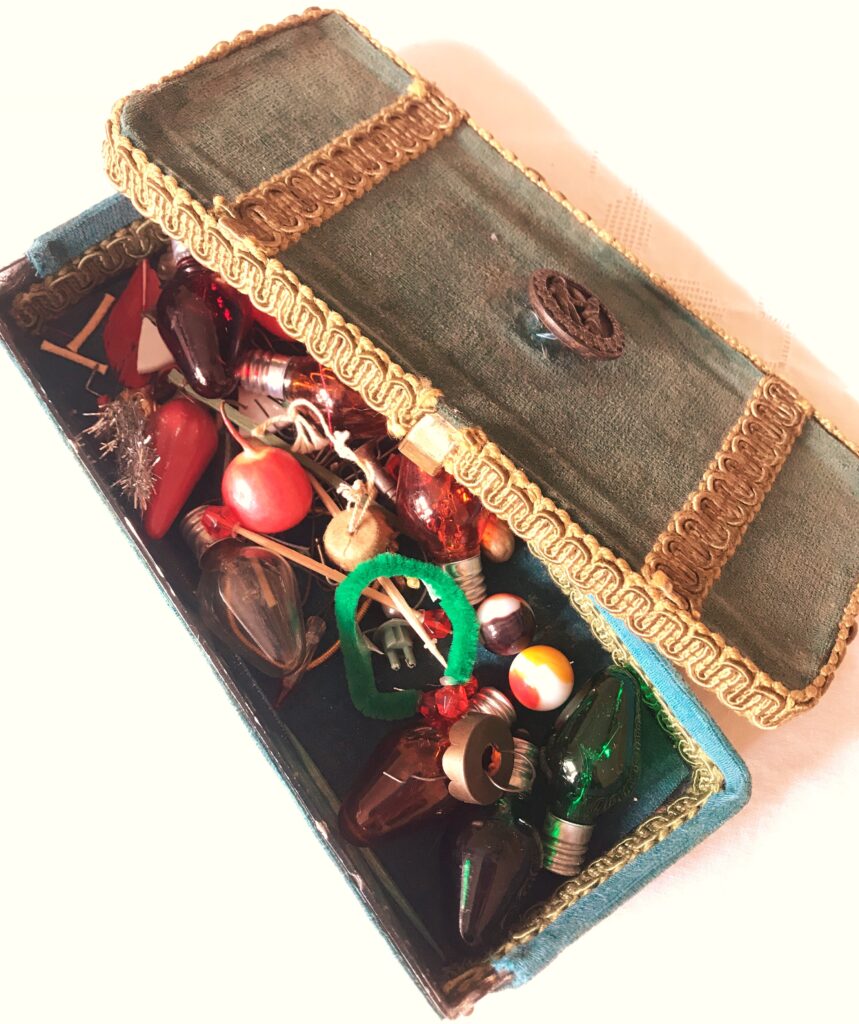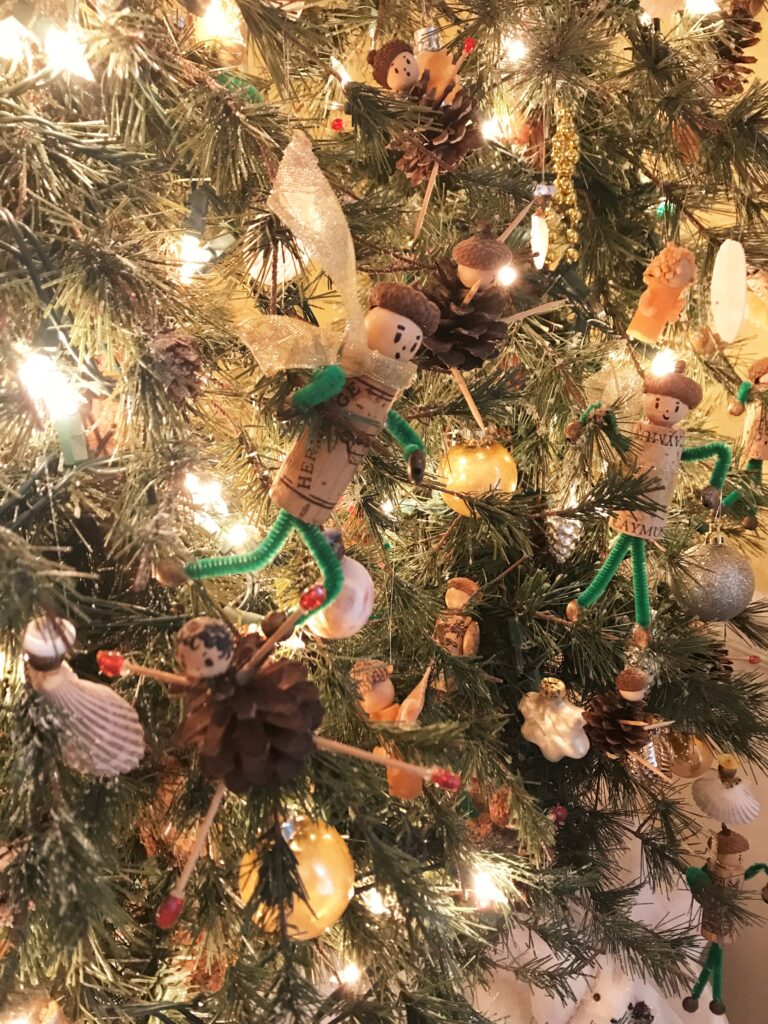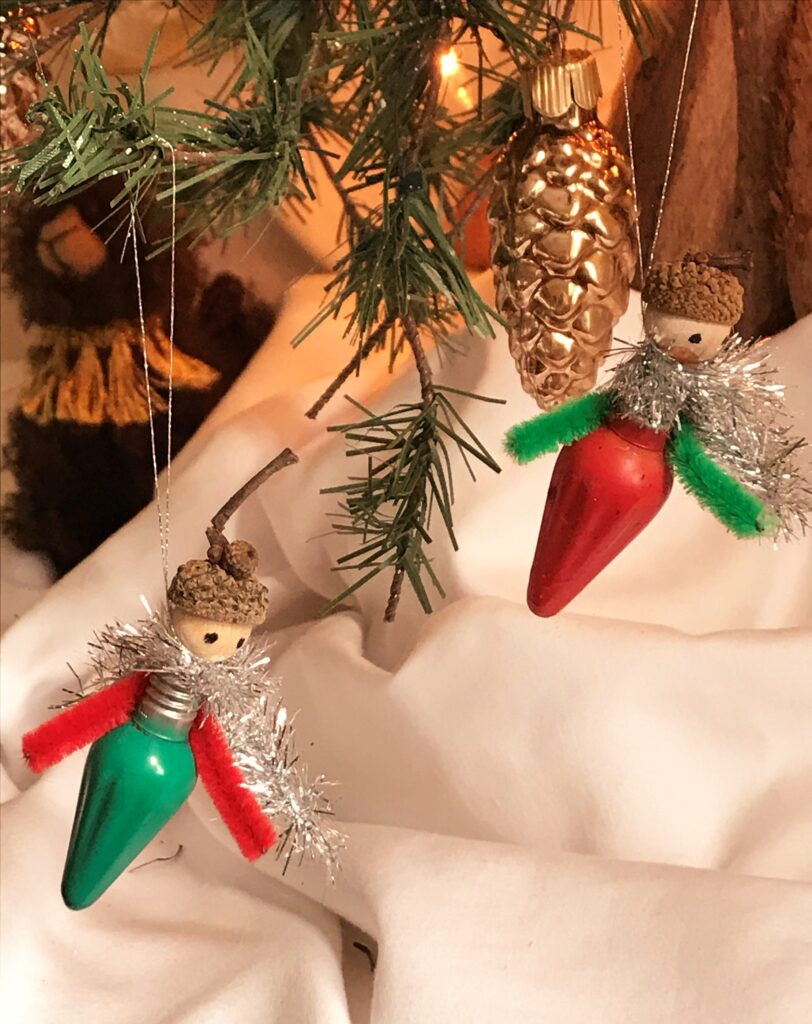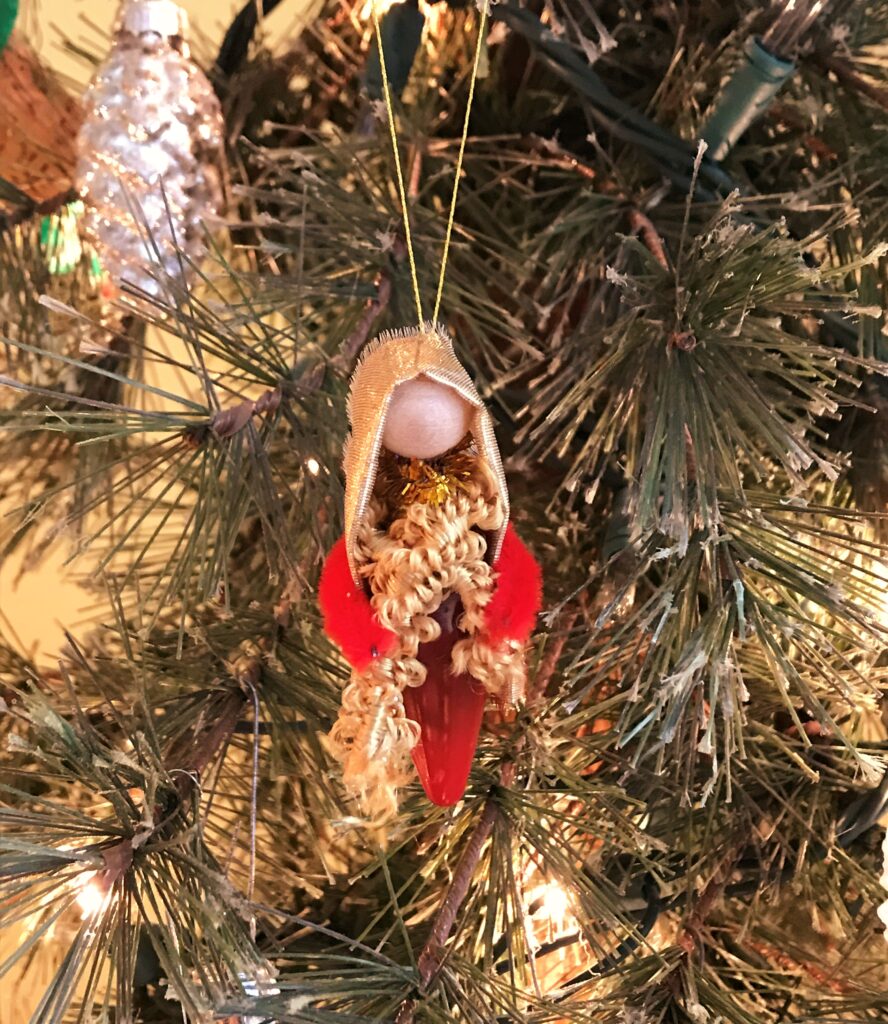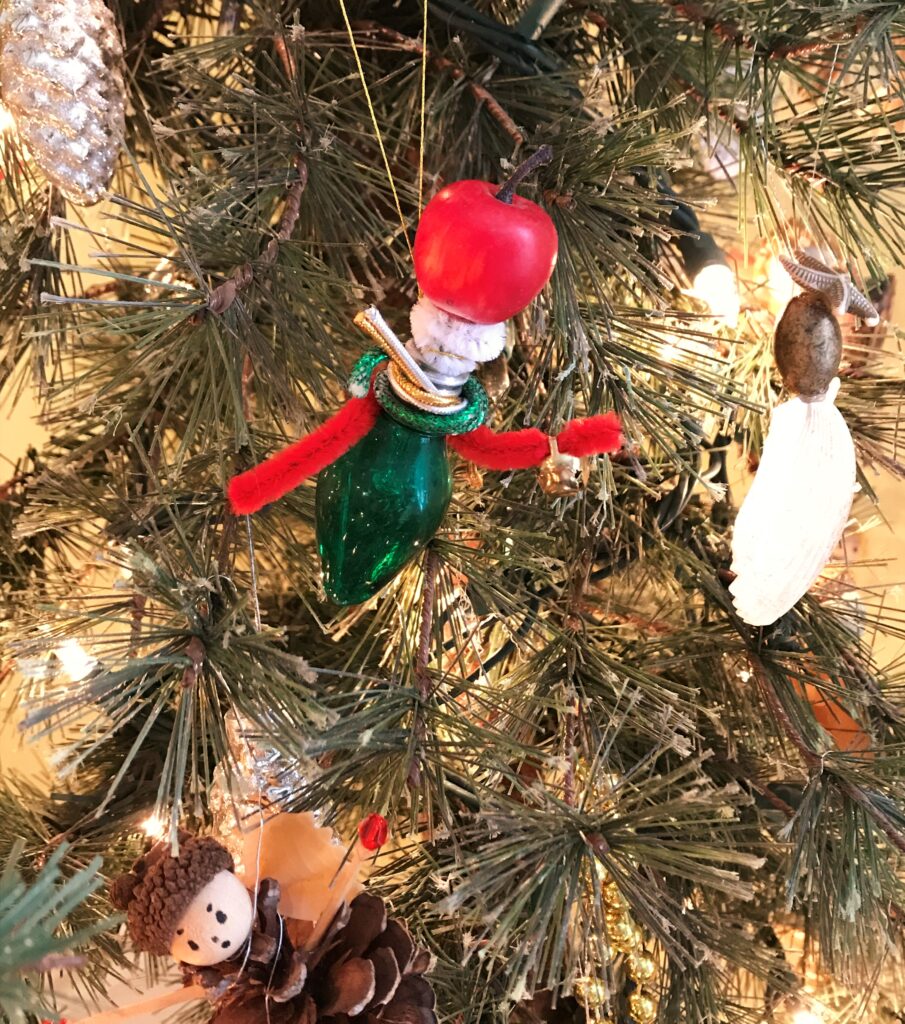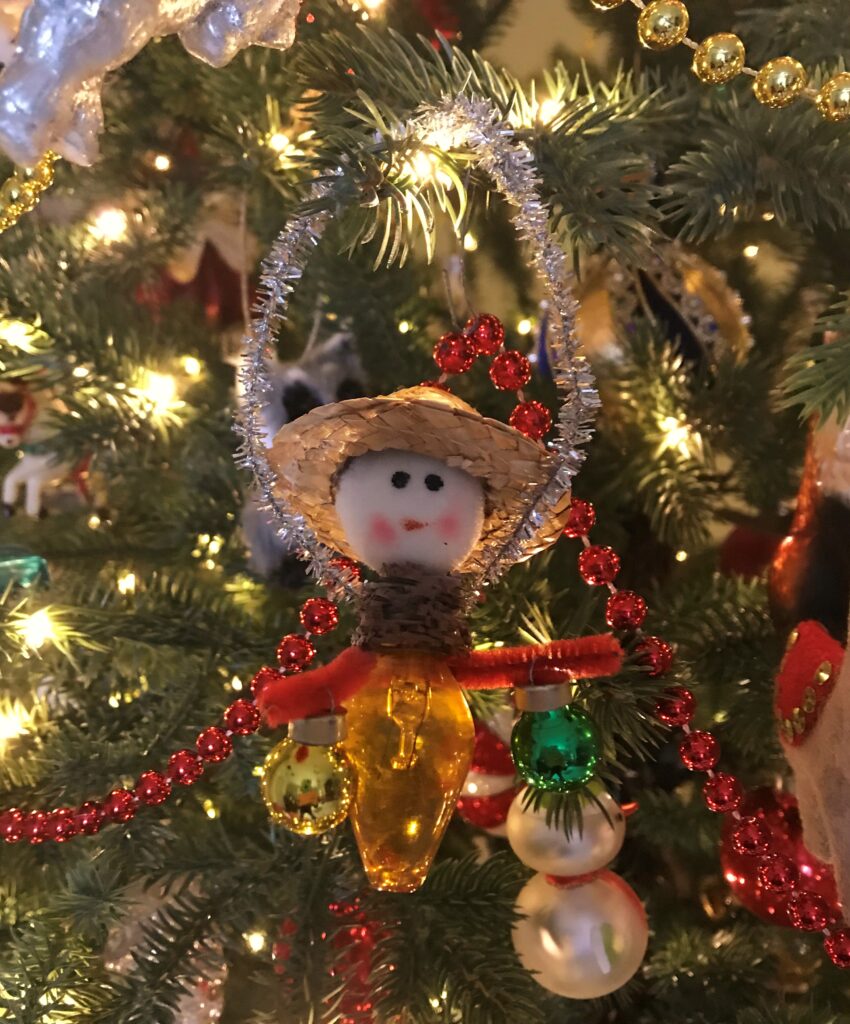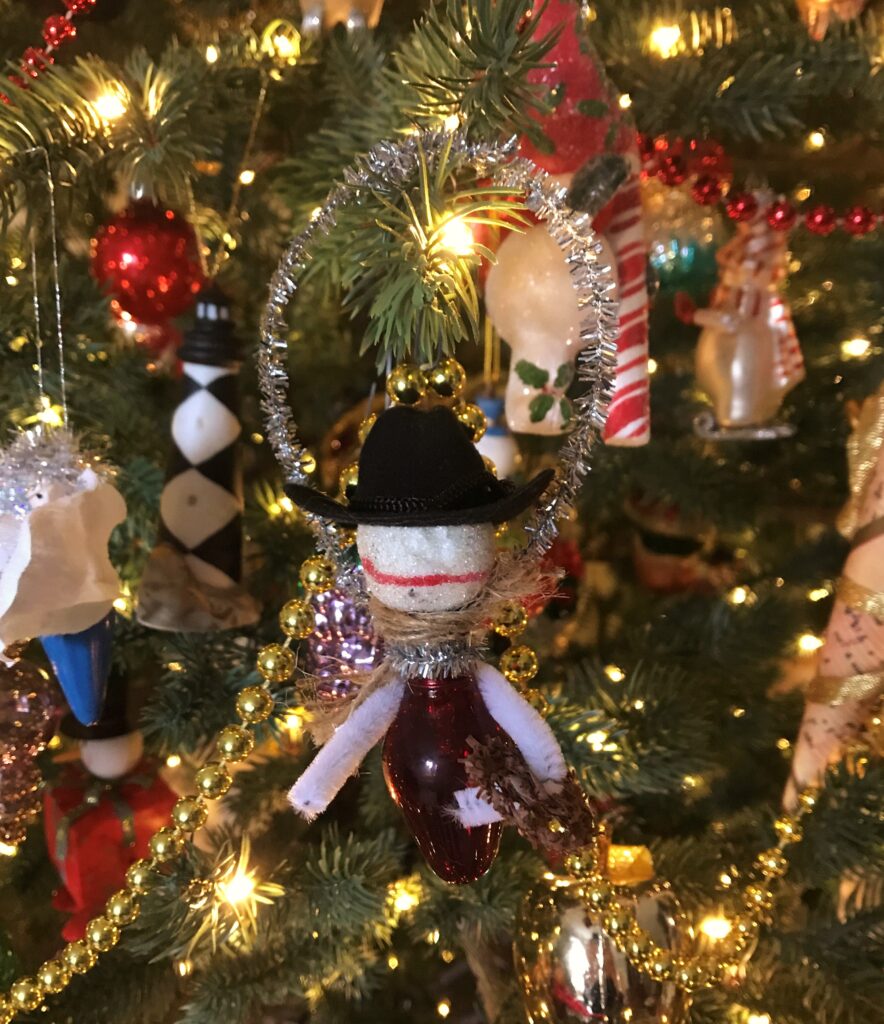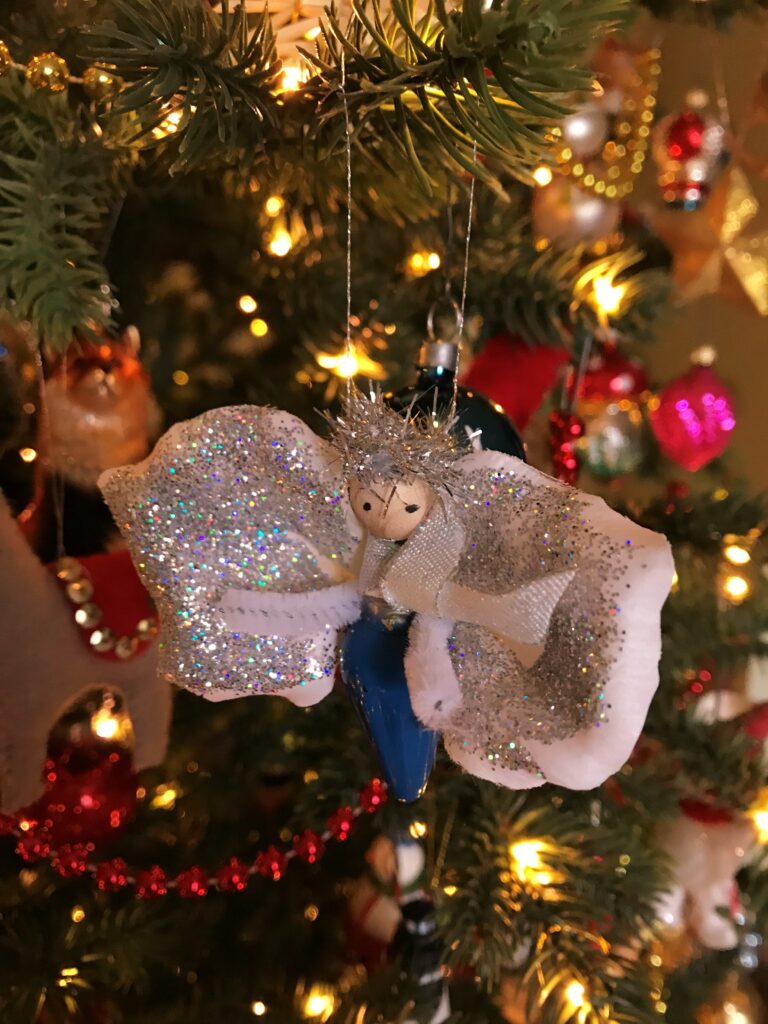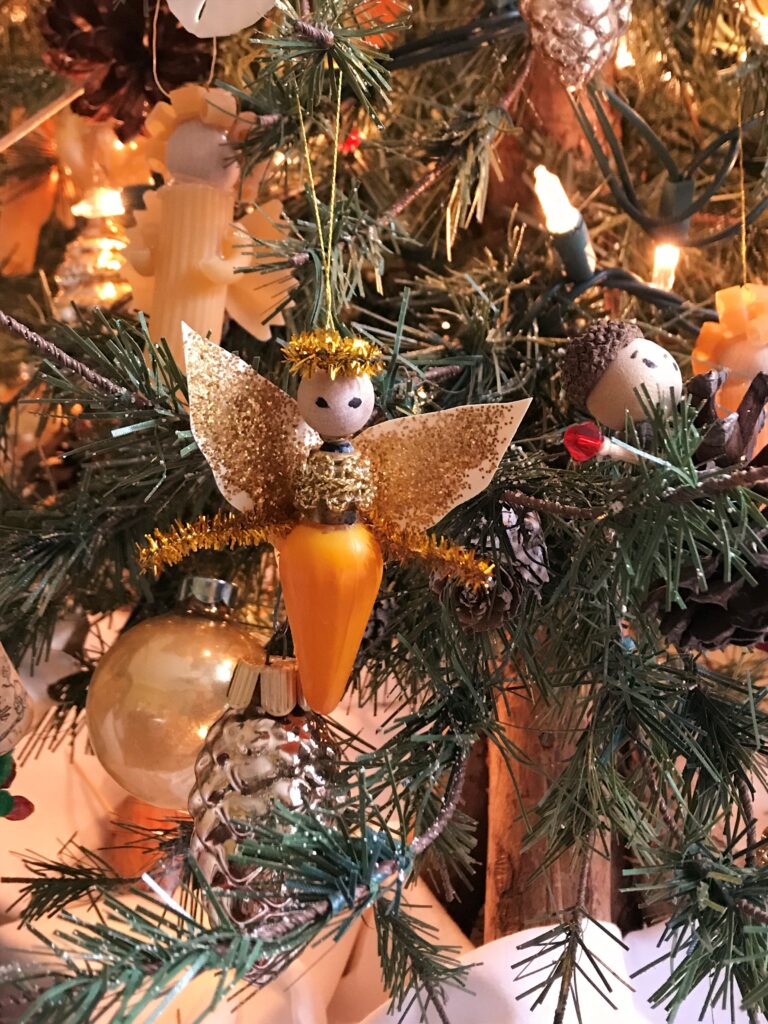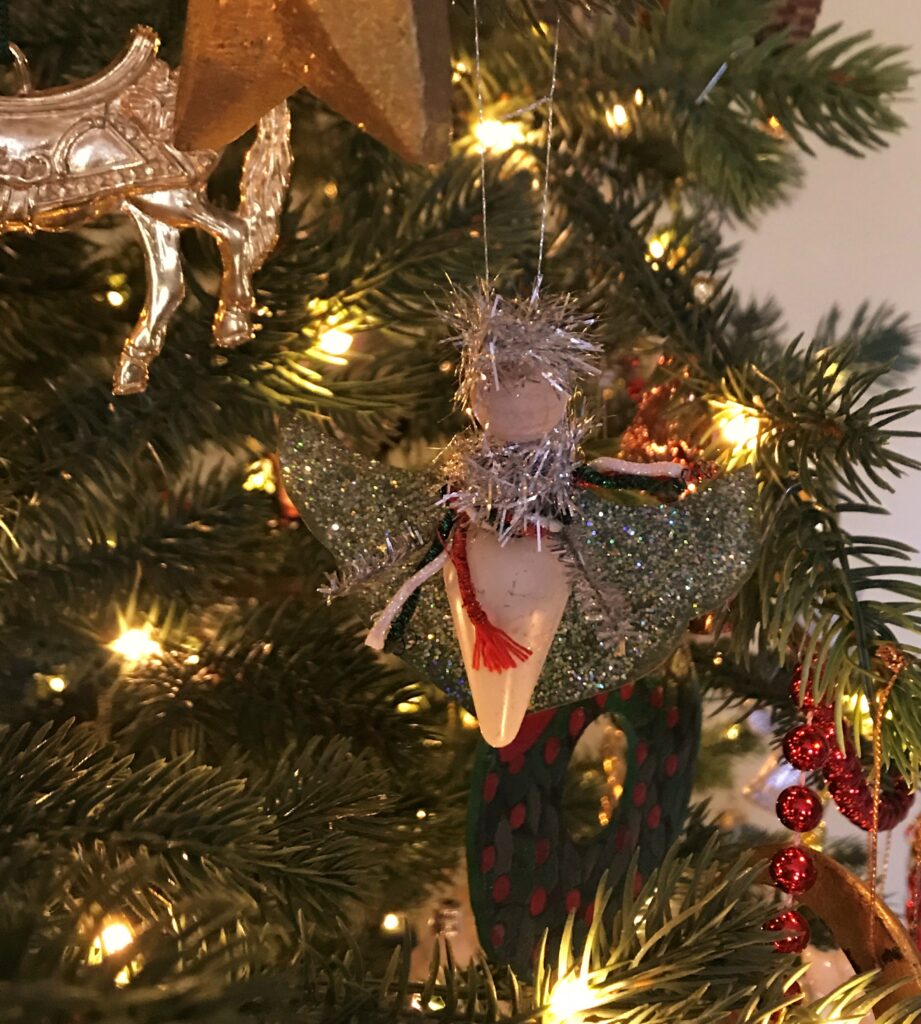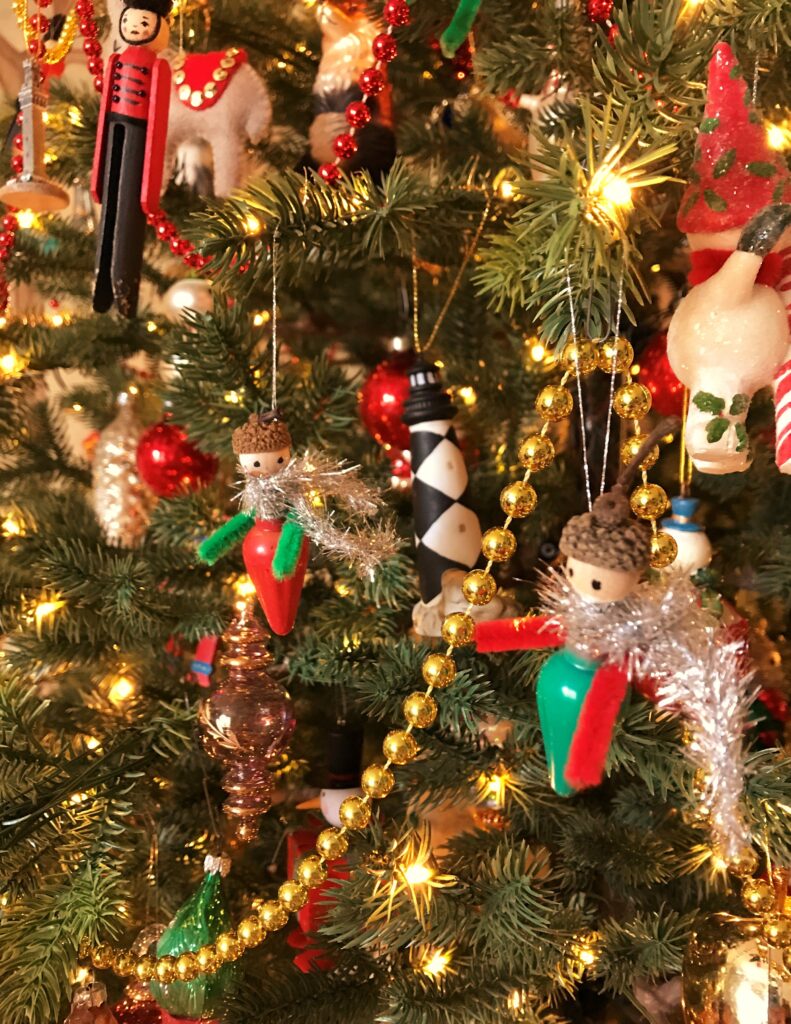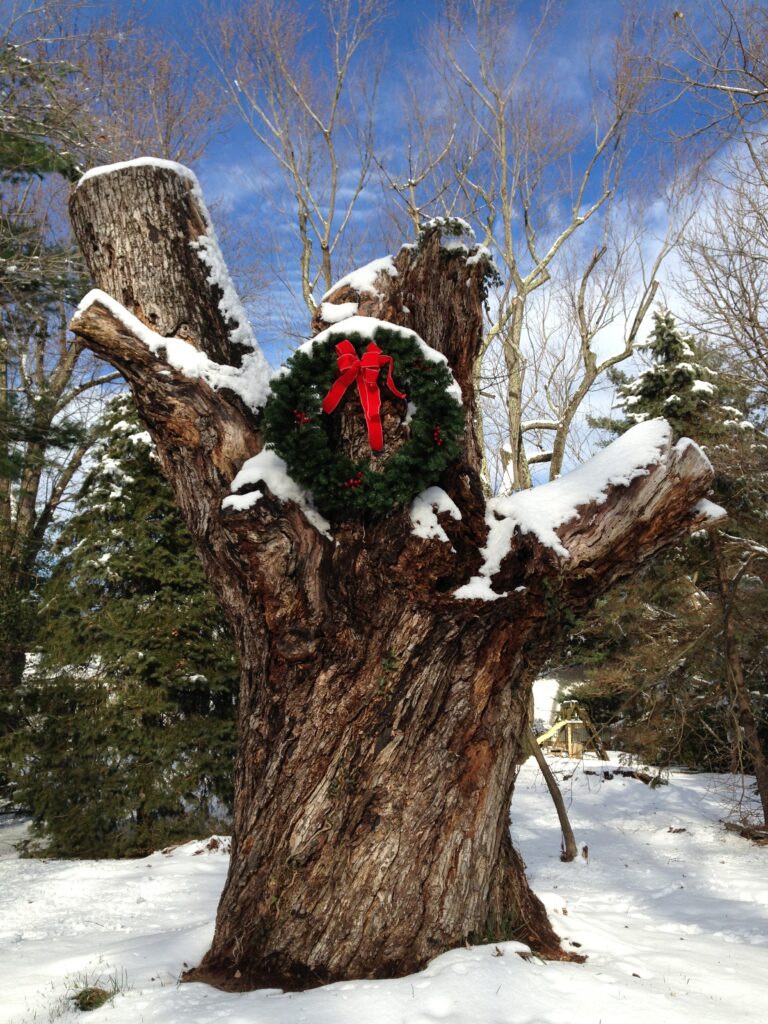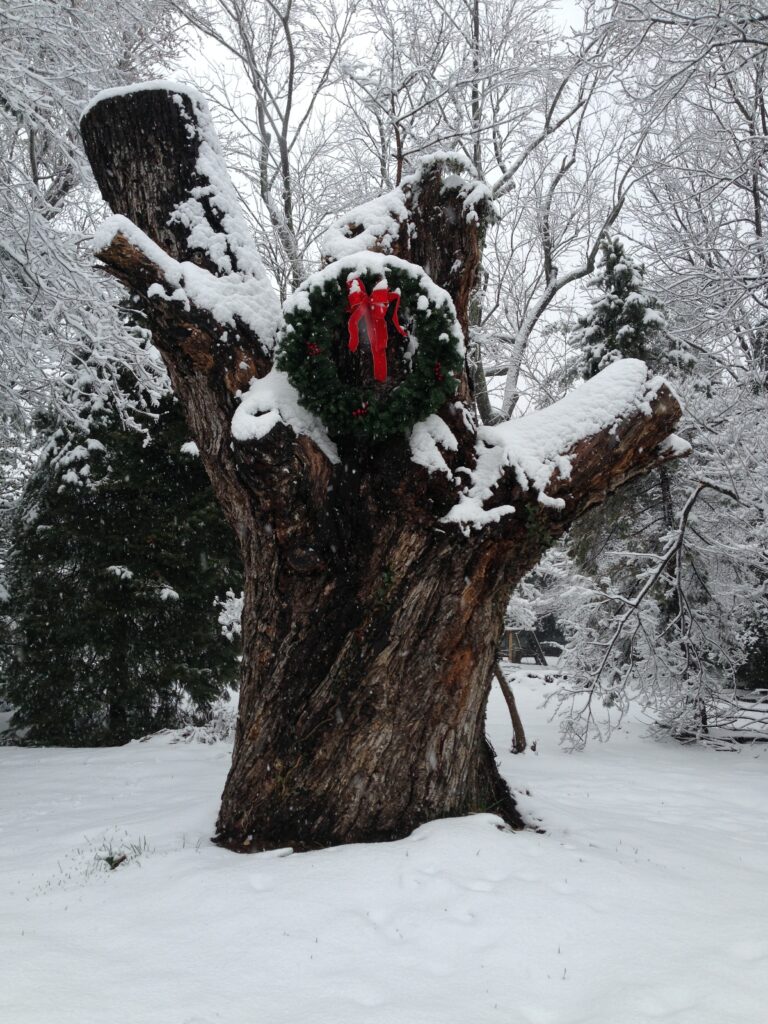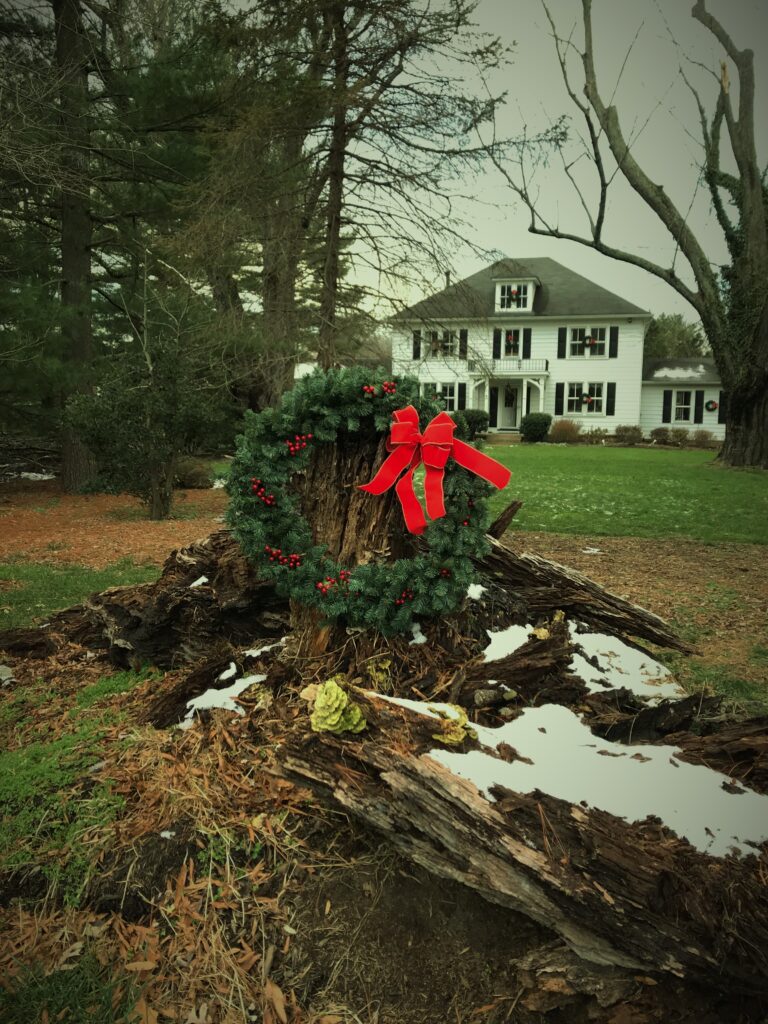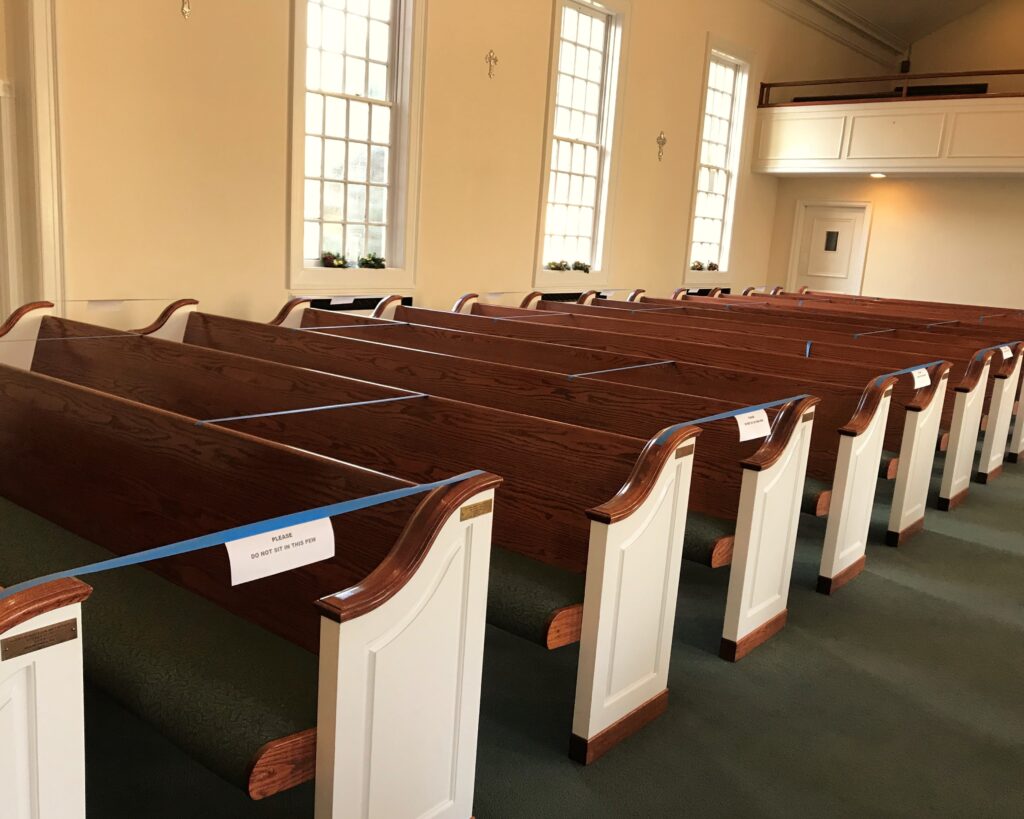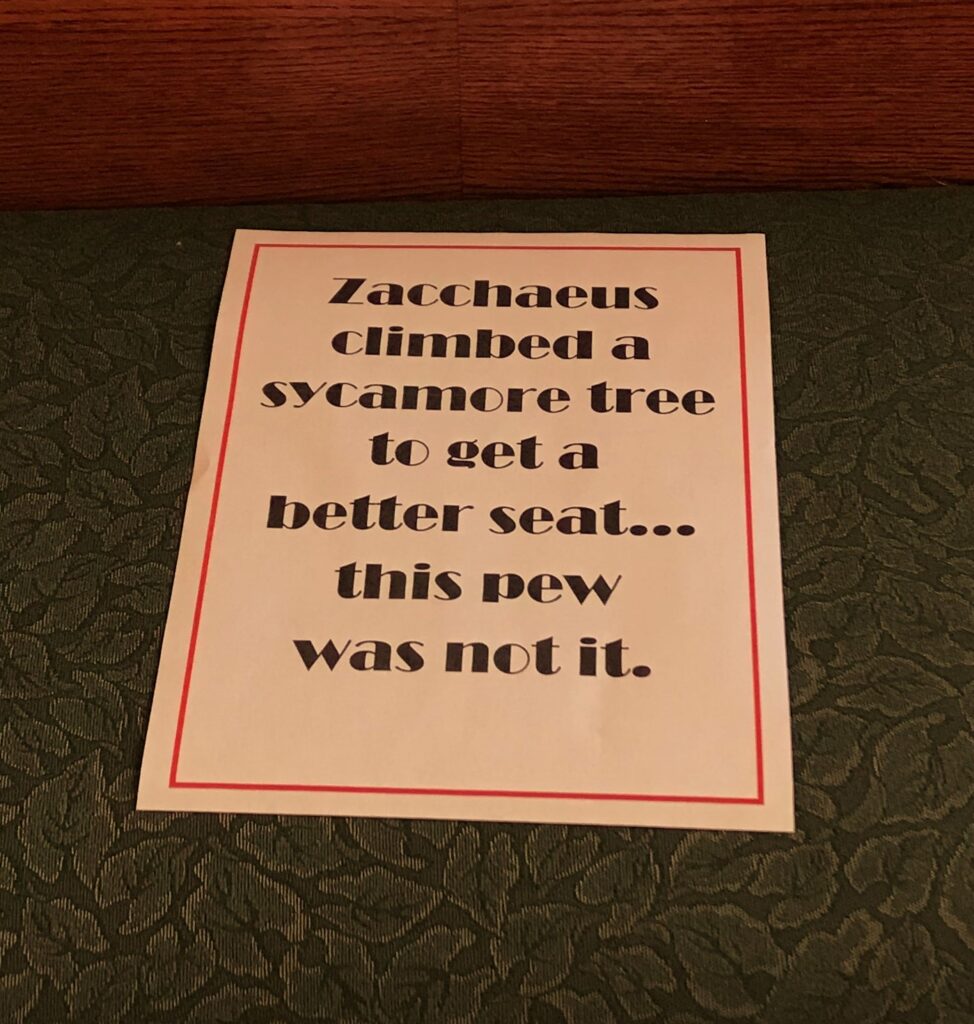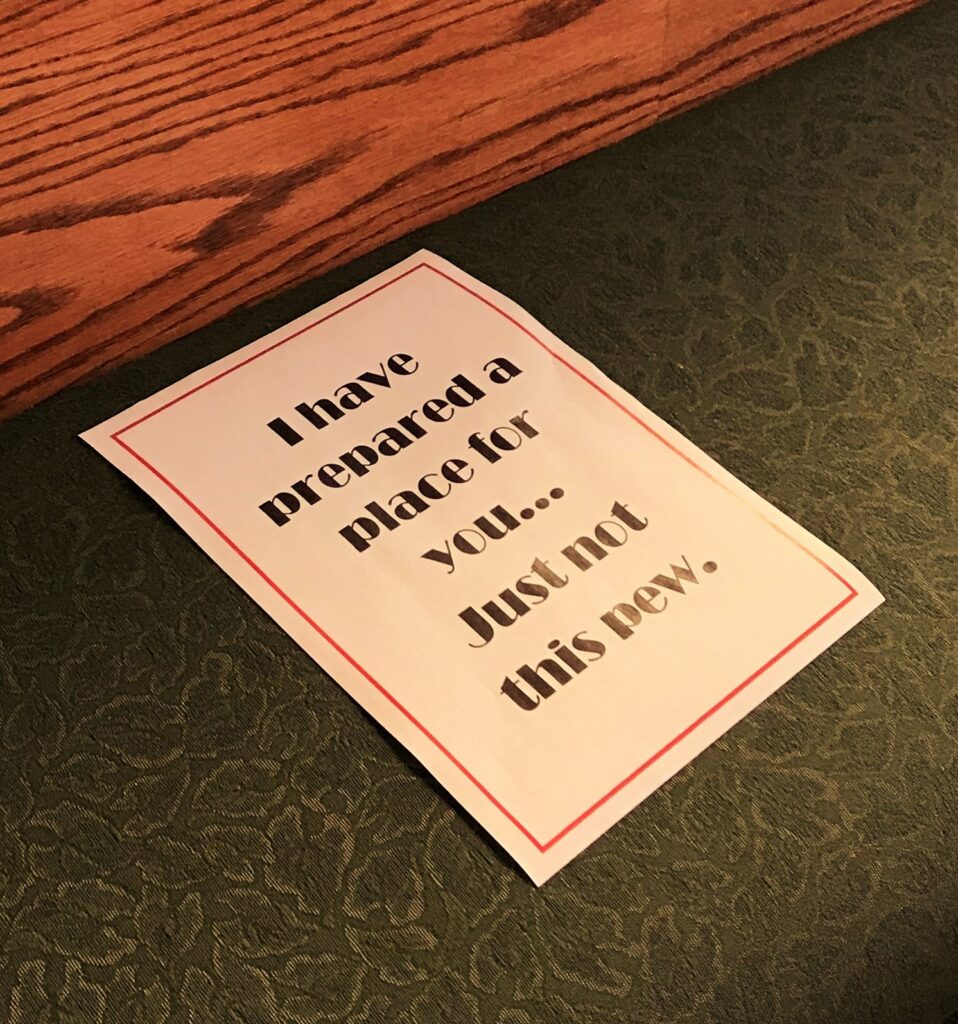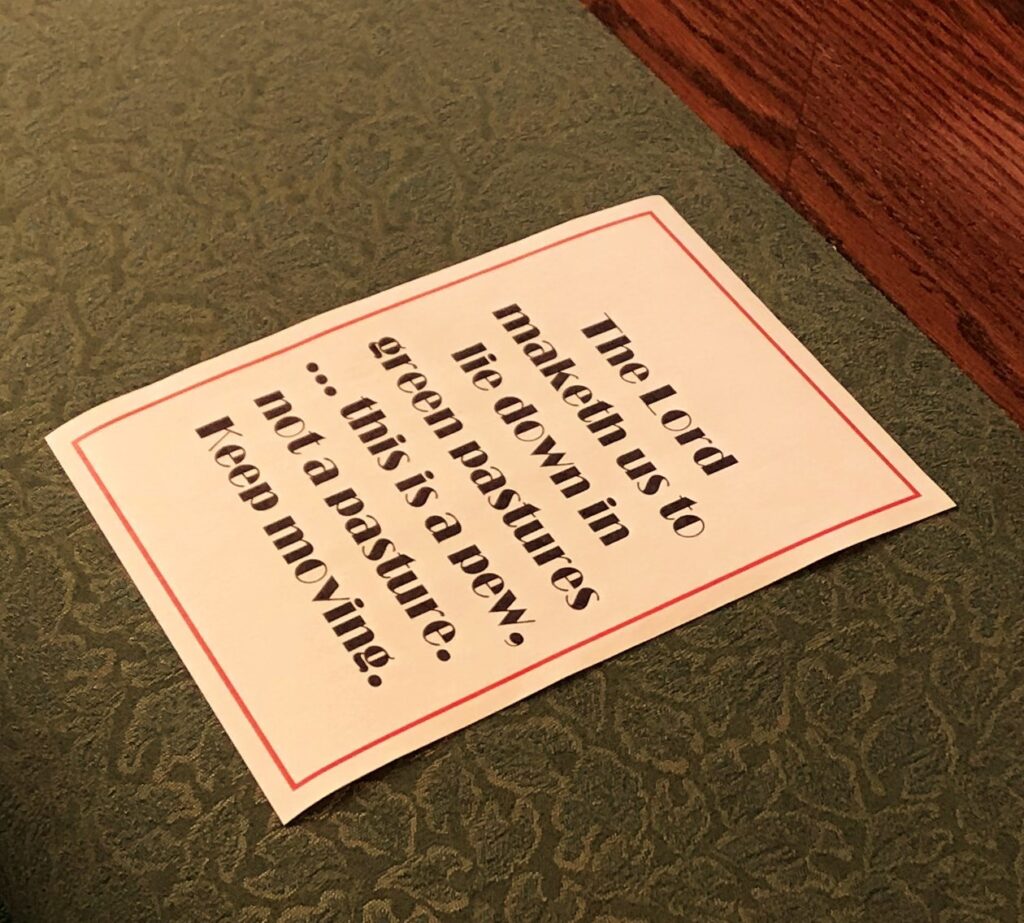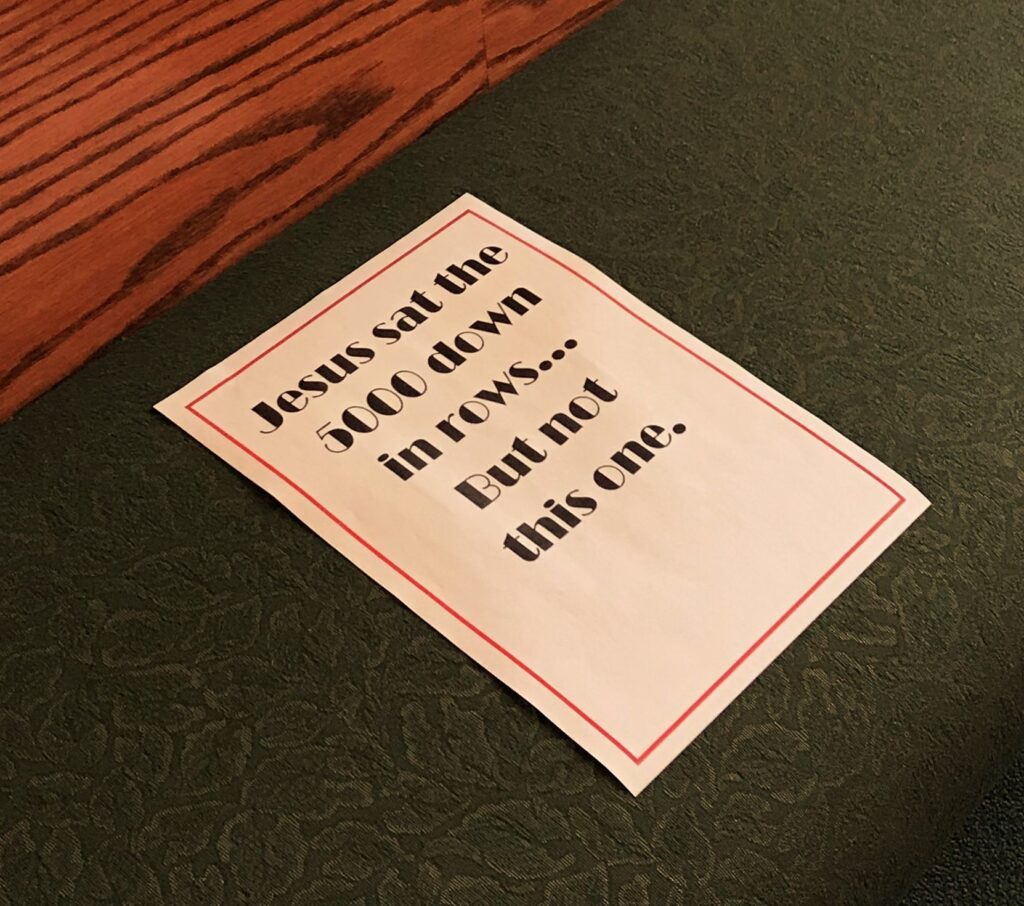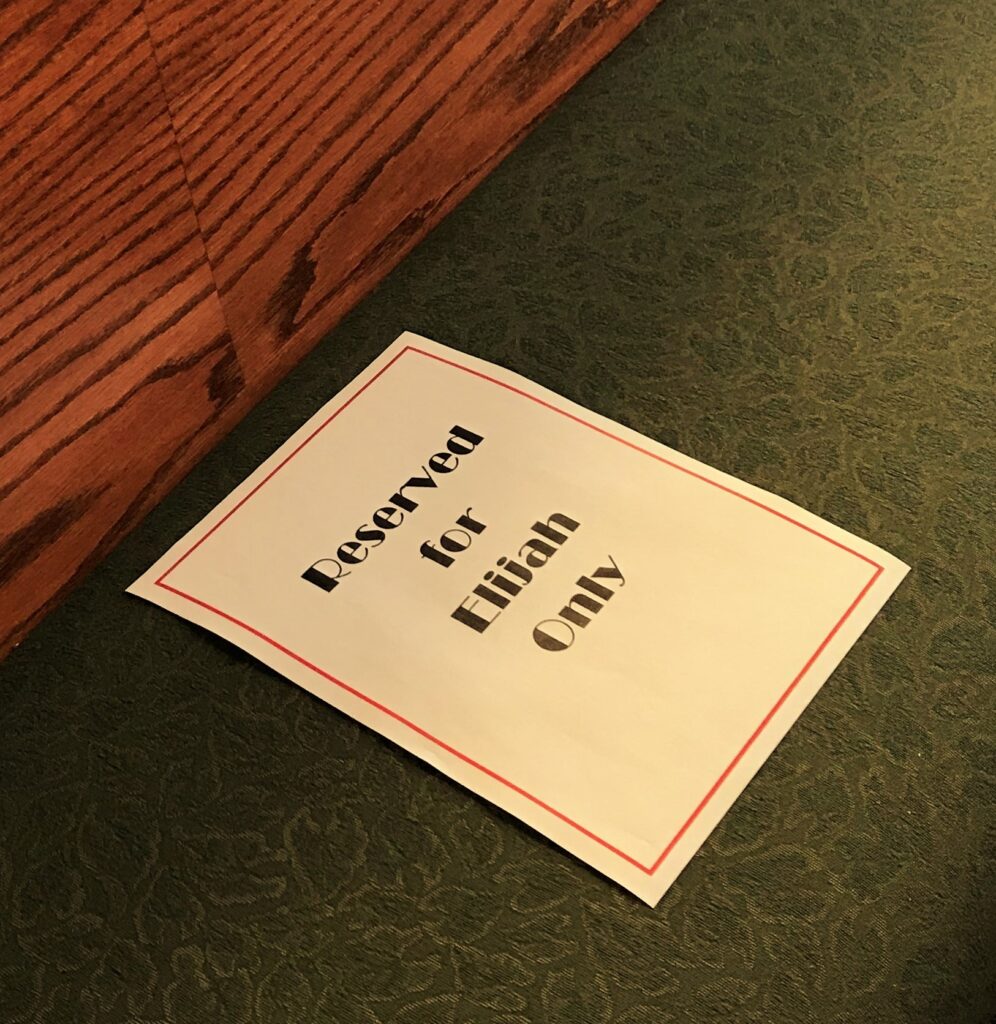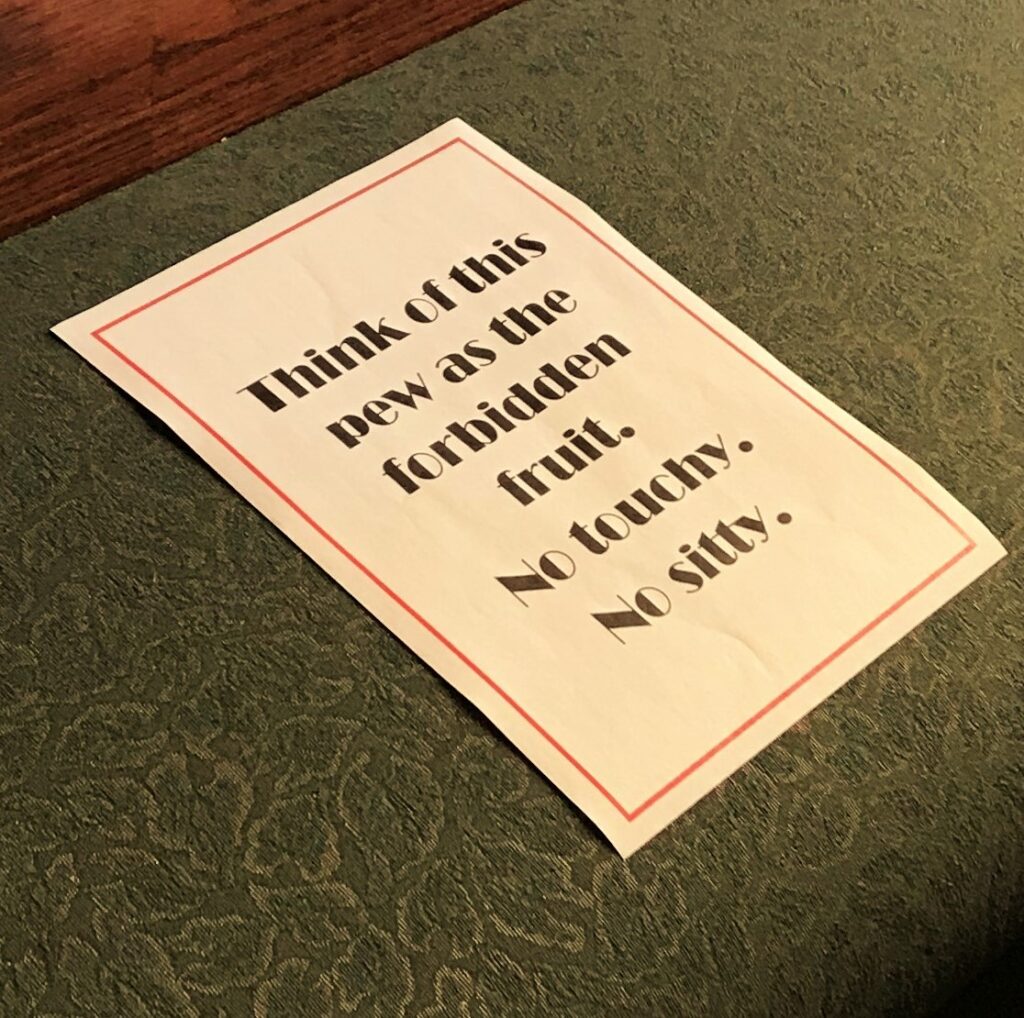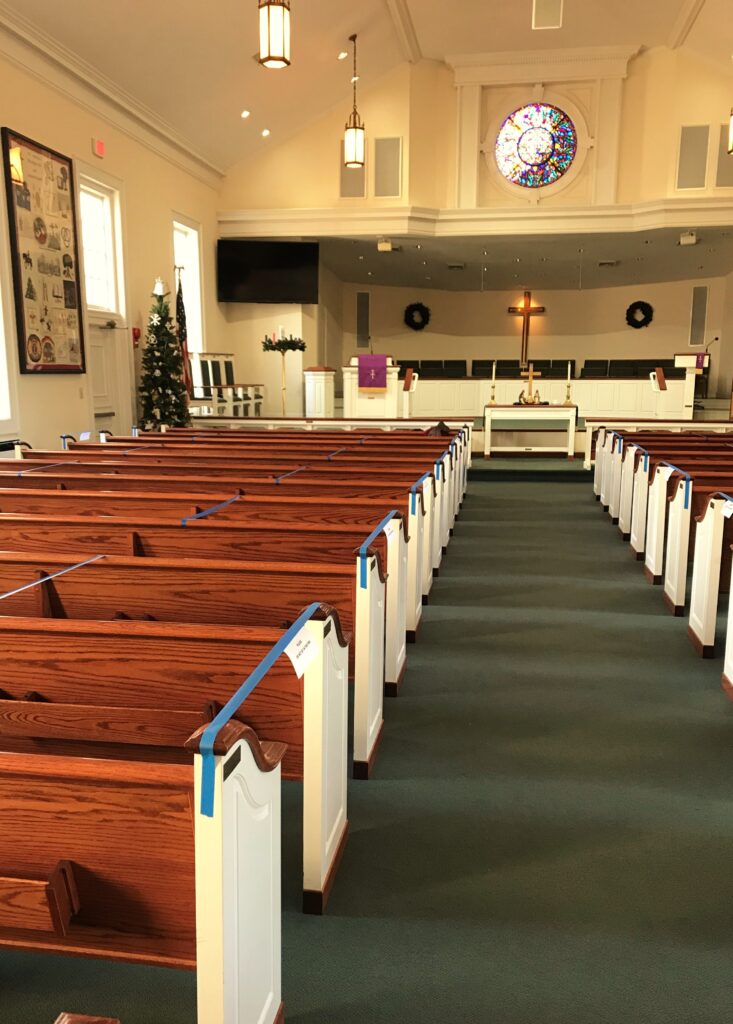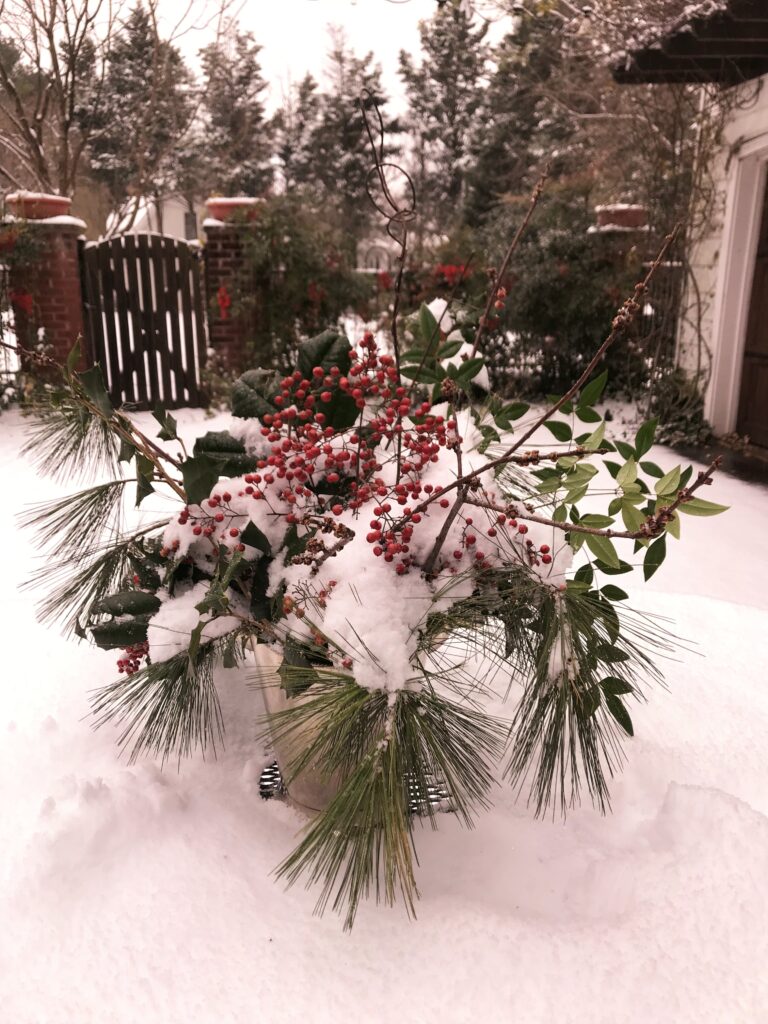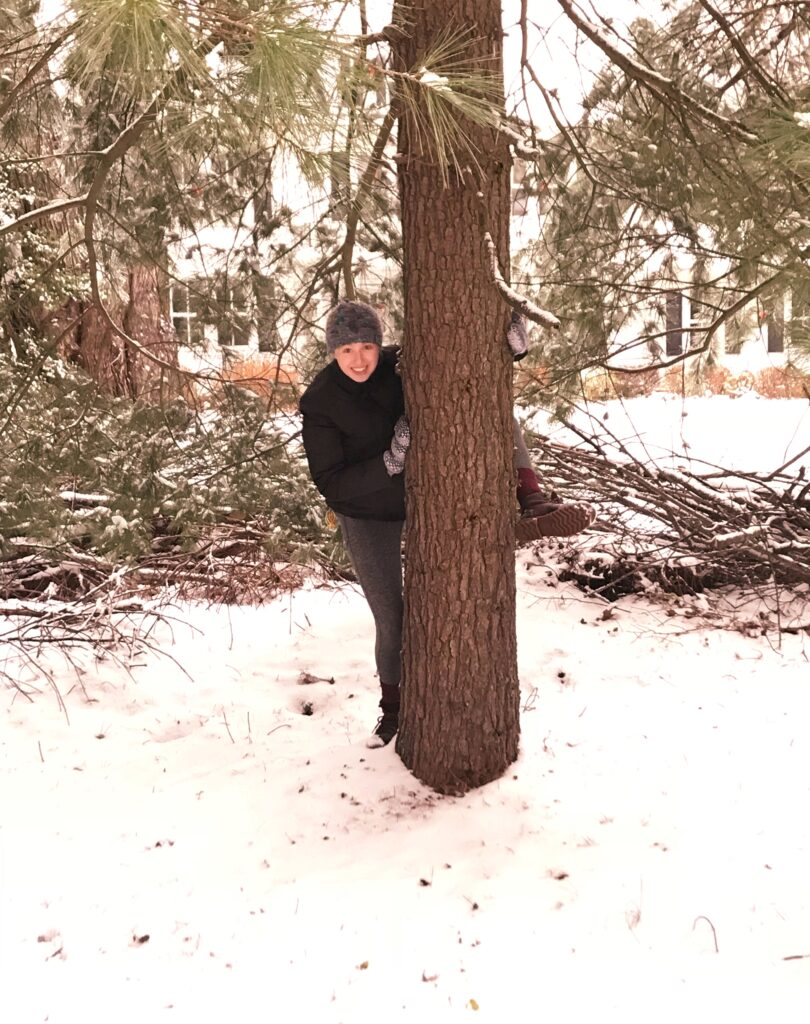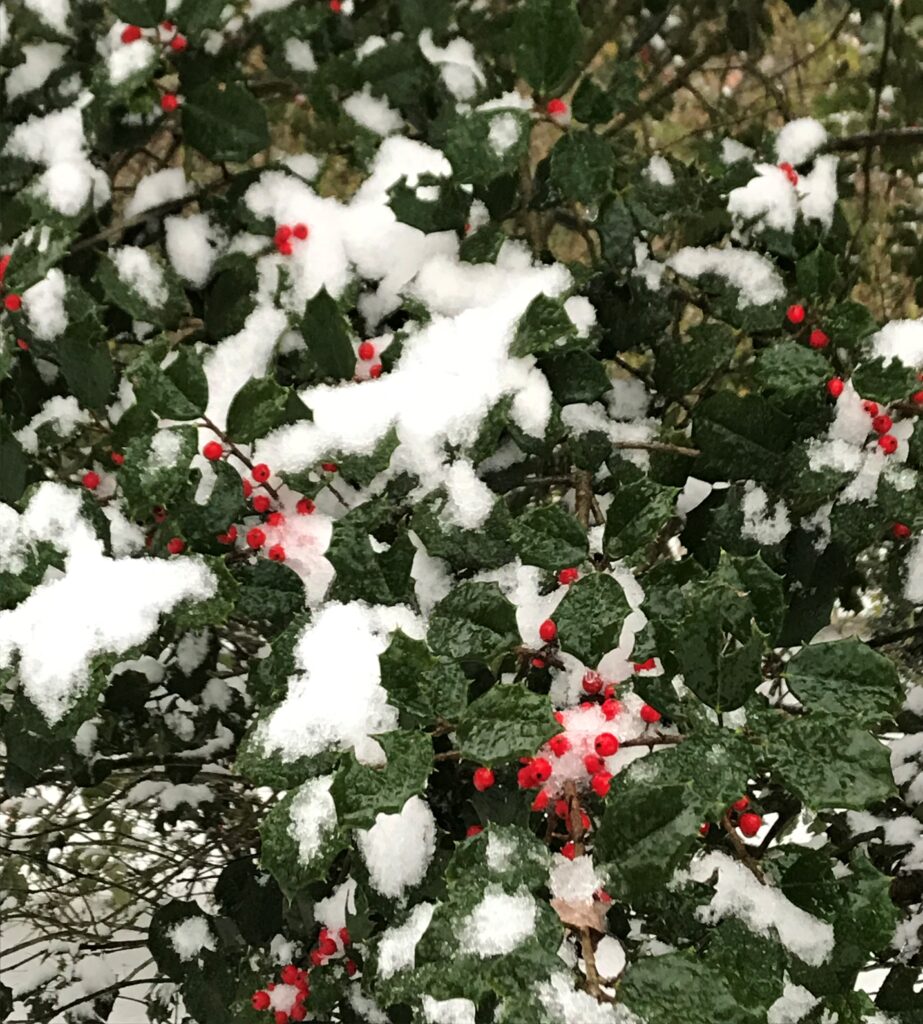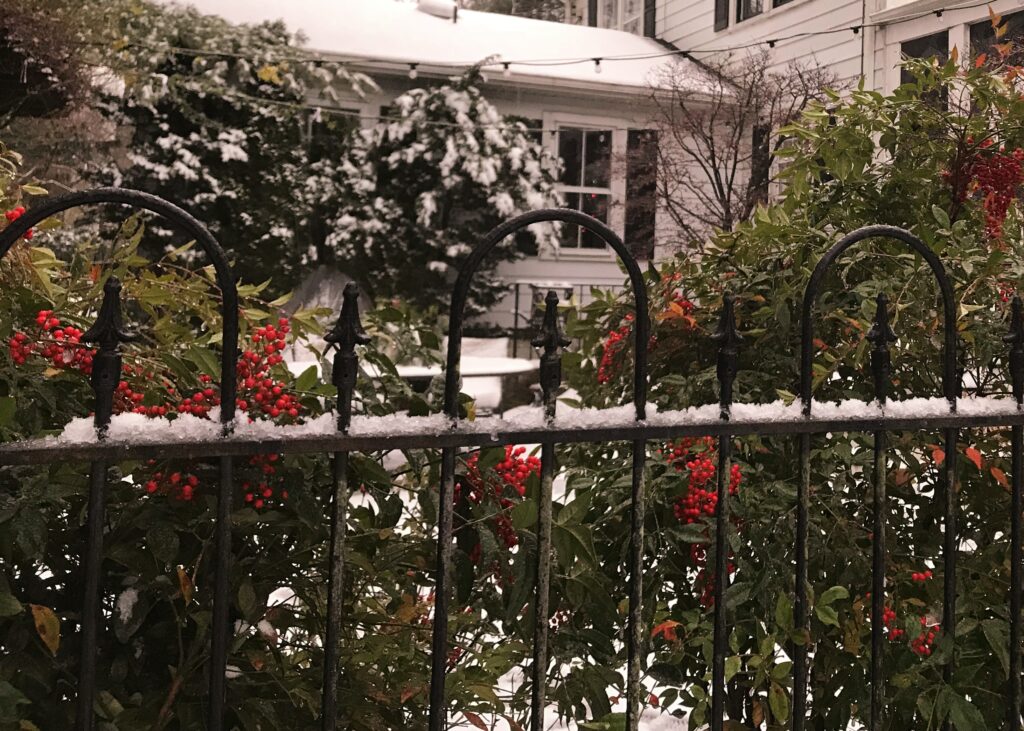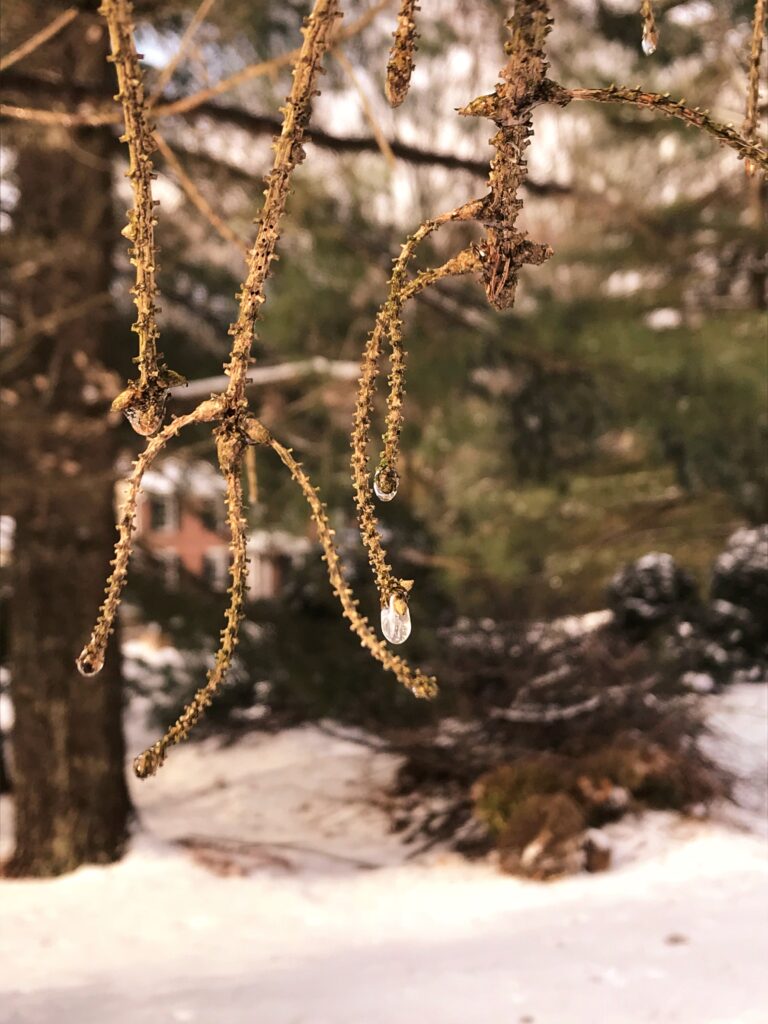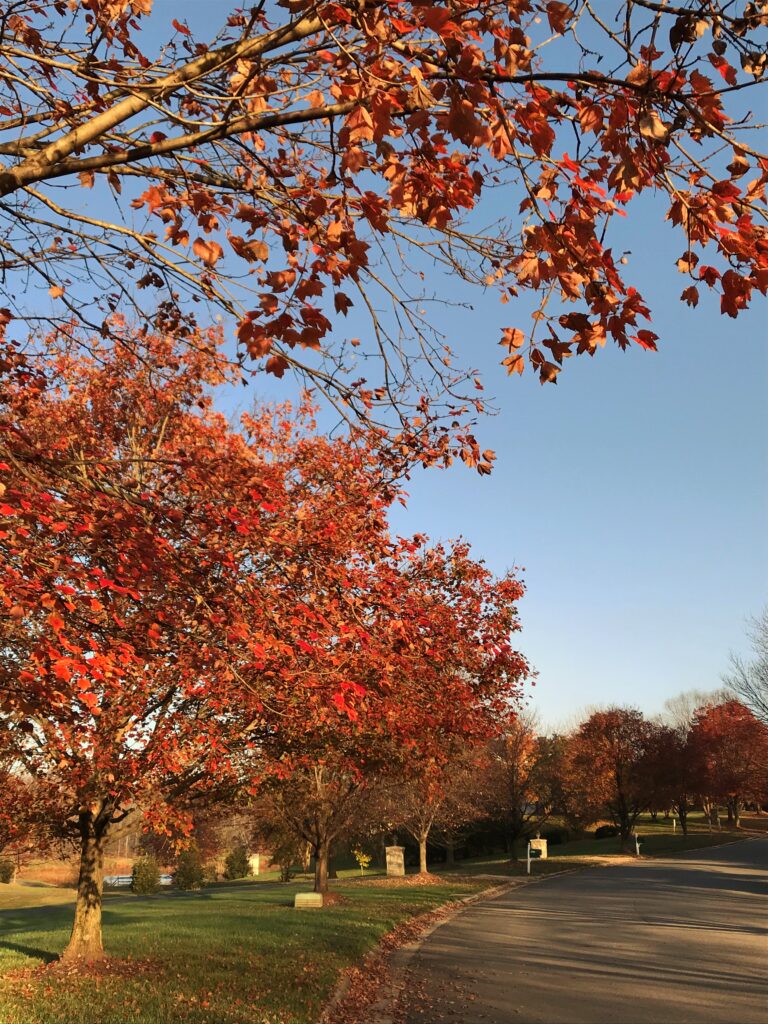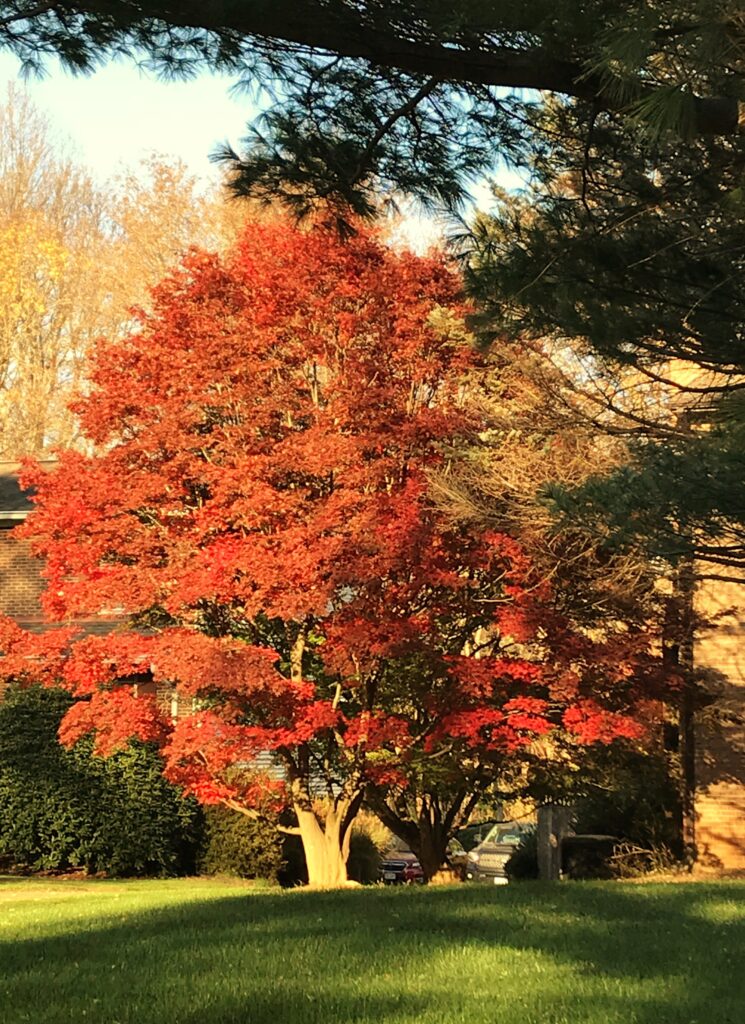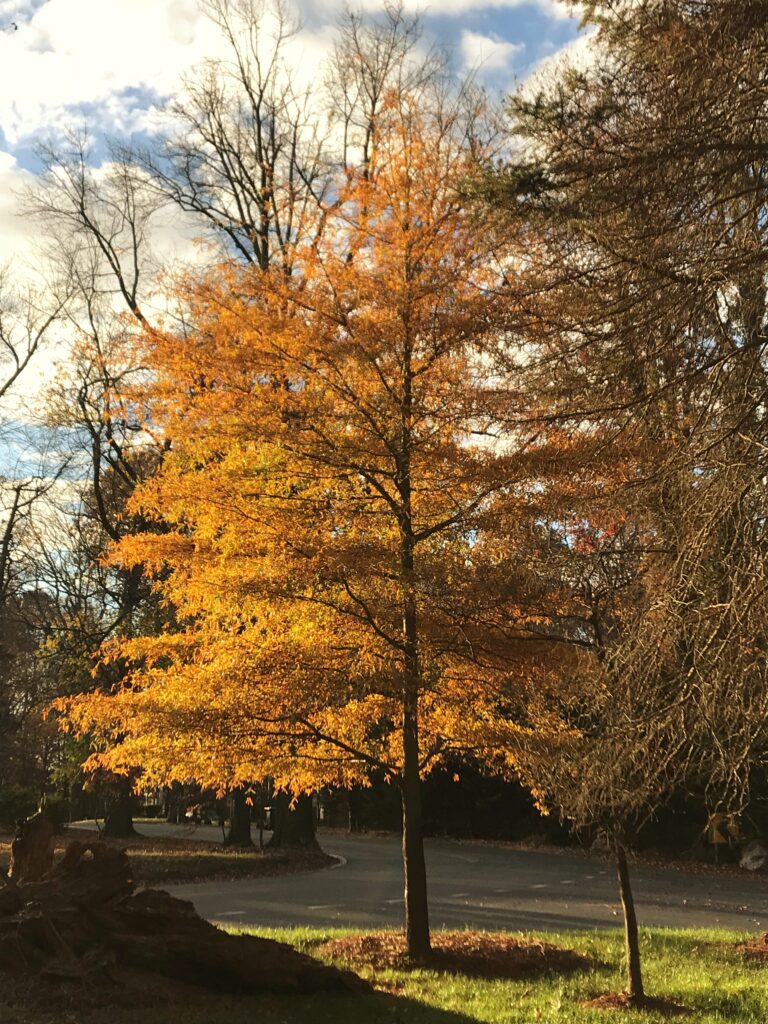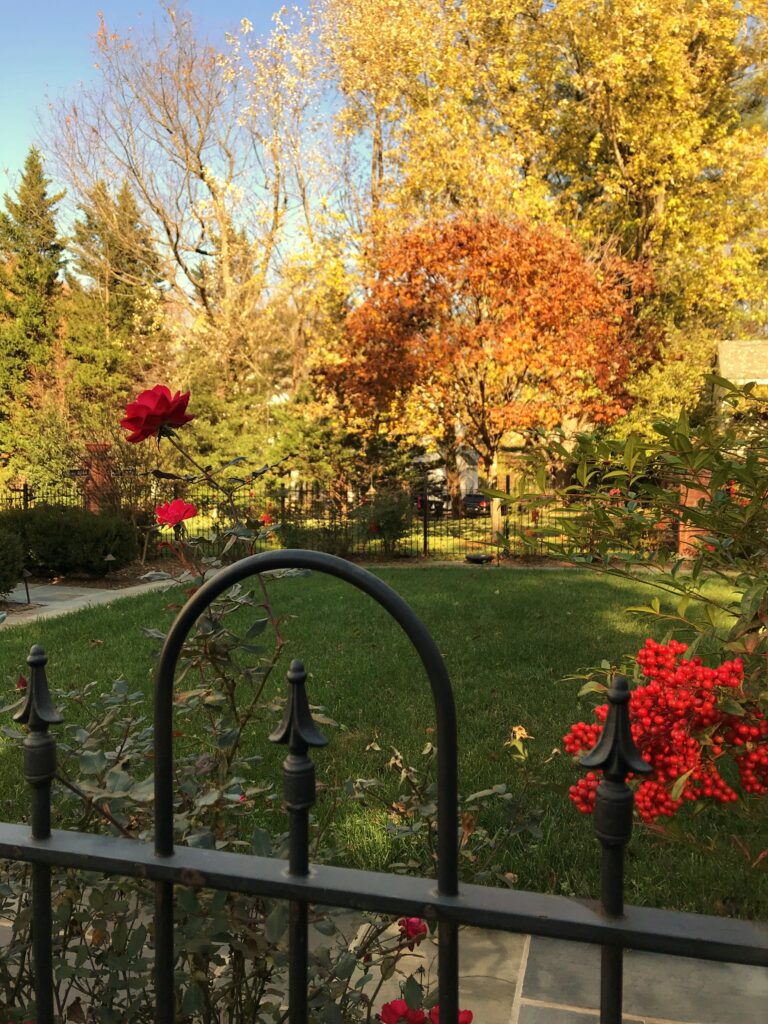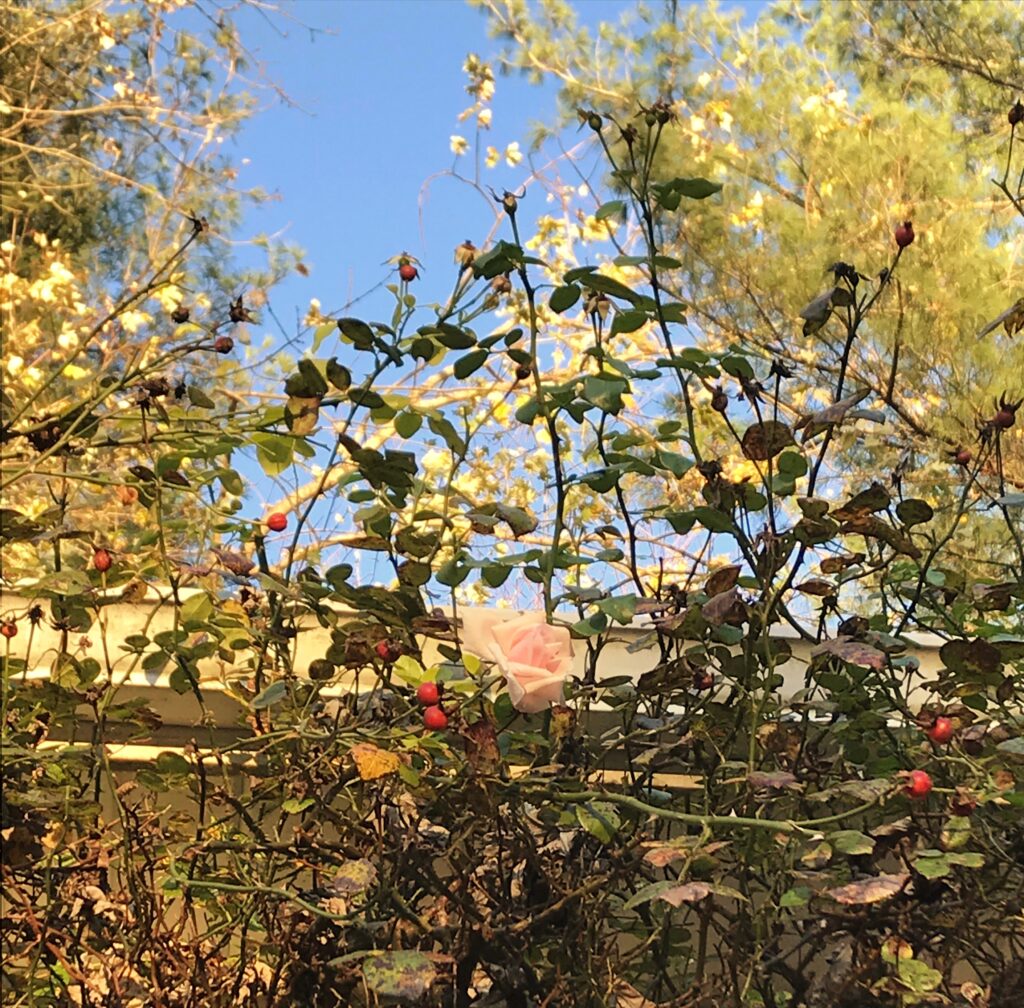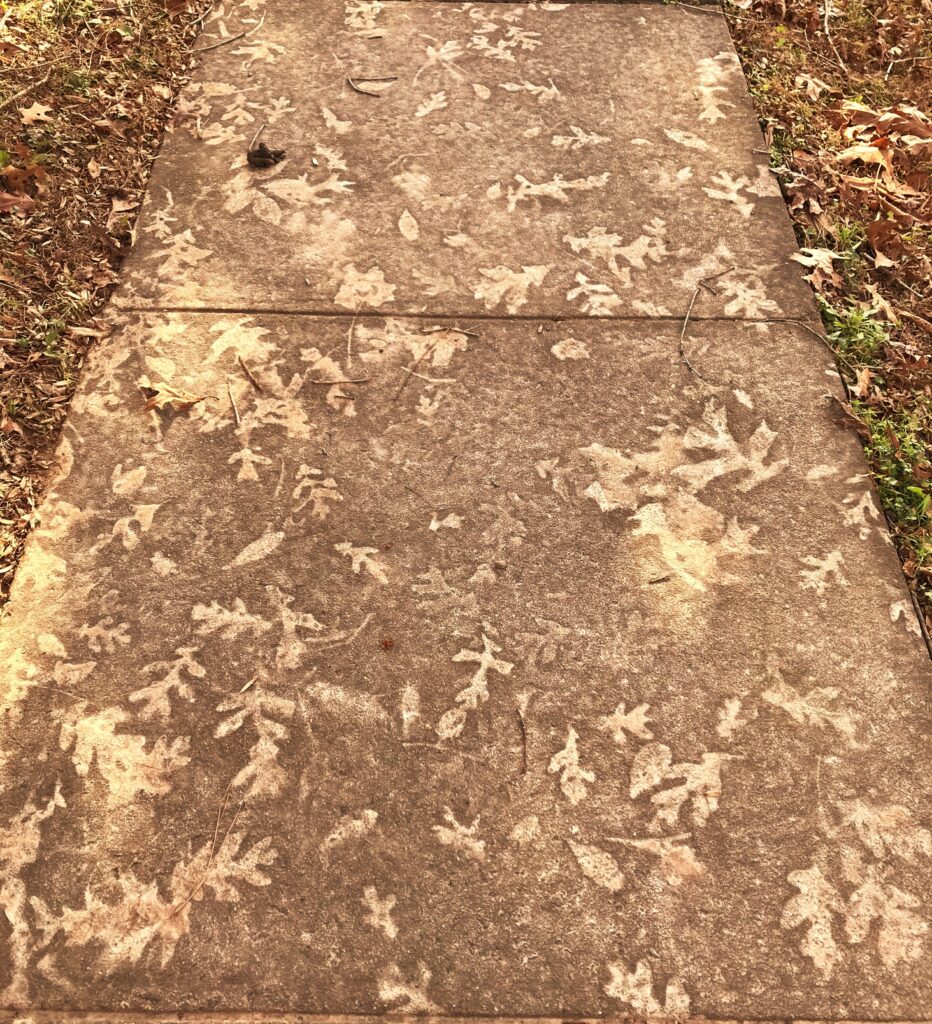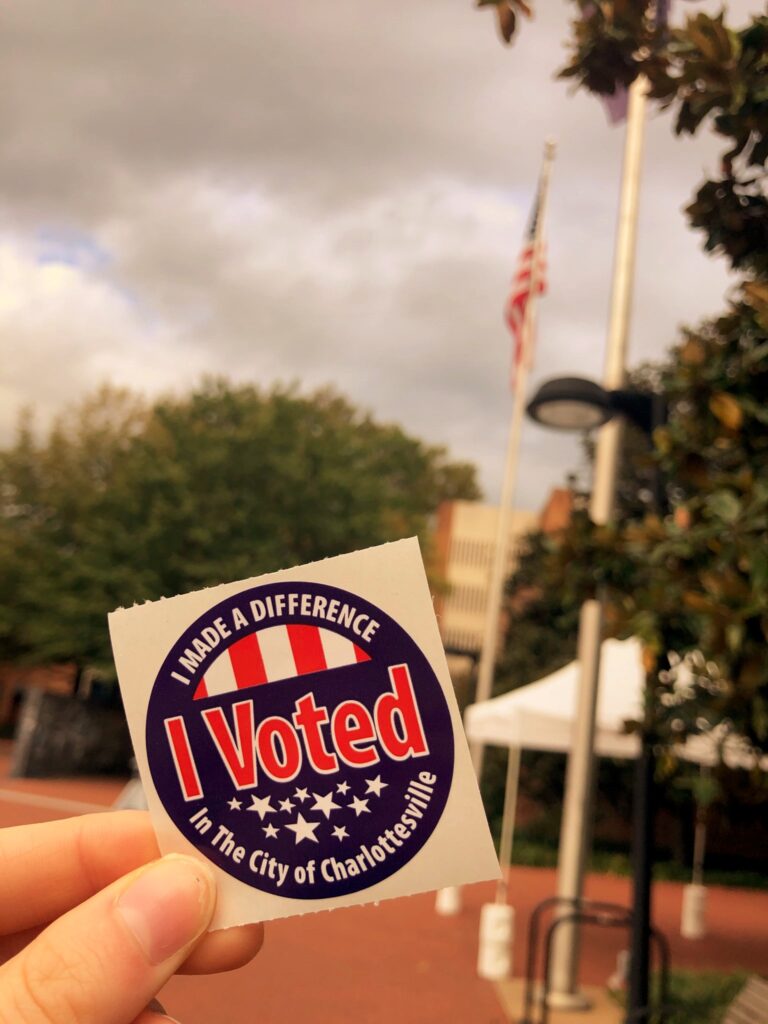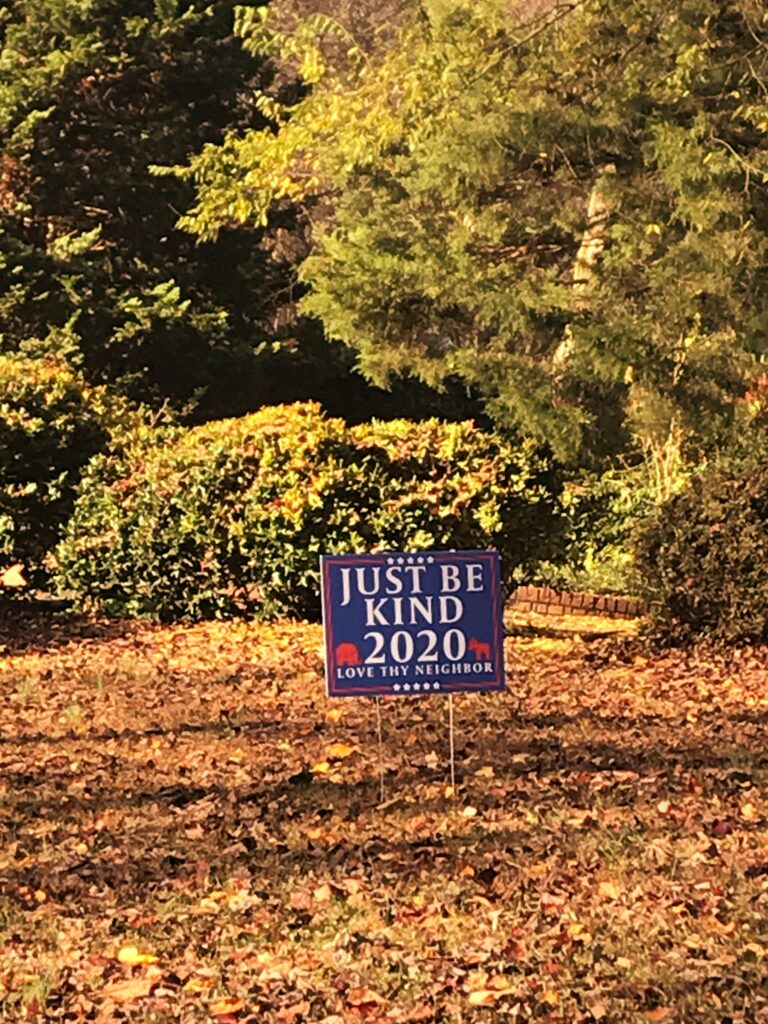In 2013 I wrote a post about decorating the tree stump at the edge of our front yard with a Christmas wreath. In the course of seven years, the stump has changed substantially, as most of us have. I didn’t hang the wreath the past two years, but this year it seemed fitting to do so. The original post appears immediately below, followed by the current update.
Deck the Tree Stump (2013)
This December, we hung a big wreath on the craggy silver maple stump in front of our house. It seemed like an interesting, if unexpected, spot for a wreath. And by decorating the tree, we could send a message to those who might see it as a business opportunity, as well as to those who think the stump is unsightly and wonder why we leave it standing. The wreath says, We love this old tree trunk, and we’re letting nature take its course.
Then I thought a little more about it, and the pairing struck me as even more appropriate in its juxtaposition of life and death. The stump is the opposite of the traditional evergreen Christmas tree. Firs and spruces, retaining the appearance of vitality through the winter, get the privilege of being cut down, hauled into our homes, strung with lights and ornaments, and left to wither and die. It’s tough work, being a symbol. Our maple, though, would be in no such danger. If intact, it would be gray-brown and leafless by now, like its neighbors in our yard. But of course, it’s a stump, a snag, and already dead. Yet it harbors vast, unseen colonies of creatures that go about the business of breaking down lifeless material. It won’t be long before nature’s course is run. The stump may not be here next year; its center is soft. All the more reason to decorate it this year.
My husband and daughter hung the wreath one weekend afternoon, as I was napping, trying to get over a persistent cold. When I trudged out to the road to see their handiwork, a new insight hit me.
I like to think that God works with us for good, despite ourselves, despite our selfish intentions and our vanity. I initially wanted to decorate the tree because I thought it would look pretty, if a bit odd. In truth, it was a way of declaring a certain pride in being different, in having the ability to see beauty where others see ugliness.
But once up, the wreath reminded me of a greater truth, of the essence of my Christian faith. Out of death comes new, transformed life. How better to say it than in the words of John 3: 16:
For God so loved the world that he gave his only Son, so that everyone who believes in him may not perish but may have eternal life.
And then the snow settled beautifully on the wreath and the tree, on the green and the gray, on the quick and the dead, like a blessing from above.
Update: The Remains of the Stump (2020)
The stump lasted far longer than I expected. But nature, human error, and cars have taken their toll. It’s in a vulnerable spot, close to the narrow road, on a particularly sharp turn that’s proven problematic for drivers time and time again. Several years ago one May morning we were awakened around dawn by a policeman at our door. He asked if that was our vehicle outside. “What vehicle?,” I heard my husband ask in a confused tone, after he’d finally made his way downstairs to the door.
“The one in the tree.”
“What?”
And sure enough, it appeared that a dark minivan had merged with the tree. While most of the stump remained, it must have been considerably weakened, as its decline soon accelerated.
Two summers ago while we were away on vacation, a little red Honda found its way quite forcefully into the stump, demolishing half of it. The section that remained no longer looked much like a tree, or even a stump. When that final piece gradually eased to the ground one day this fall, we barely noticed. Why not, one might ask, remove it, at this point? One answer is that, even as a pile of debris, it serves as a barrier for future wayward vehicles.
Last week, returning from a walk with the dog, I surveyed the battered remains of the once mighty silver maple. It, with five others, was planted the same year that our house was built, in 1920. (See The Silver Maples Say Welcome Home, April 2012.) Several large patches of ruffled pale green lichen had sprouted from the decaying wood. Even in its final stages, the tree continues to serve as evidence of the circle of life. (See Underfoot, and Easily Overlooked. . . October 18, 2013.) I thought of the big wreath hanging neglected behind the hockey nets in the garage. Why not, during this Covid Christmas season, decorate the vestiges of the tree as it’s in the process of transformation? The wreath on the ruins is, to me, a reminder that hope does indeed remain. We can have hope in human ingenuity and resilience during the darkest of times, proof of which is offered by, among other achievements, the development of highly effective Covid vaccines in record time. We can have hope in a divine and loving parent, who created not only maple tree and lichen, but also each one of us human children, unique in our blend of talents, strengths, weaknesses and inconsistencies. We were created for a life that increases in abundance as we love one another and rejoice in our differences. We were created for an abundant life that transcends the boundaries of this flawed and fantastic earthly realm.
. . .and hope does not disappoint us, because God’s love has been poured out on us through the Holy Spirit which has been given to us.
–Romans 5:5

